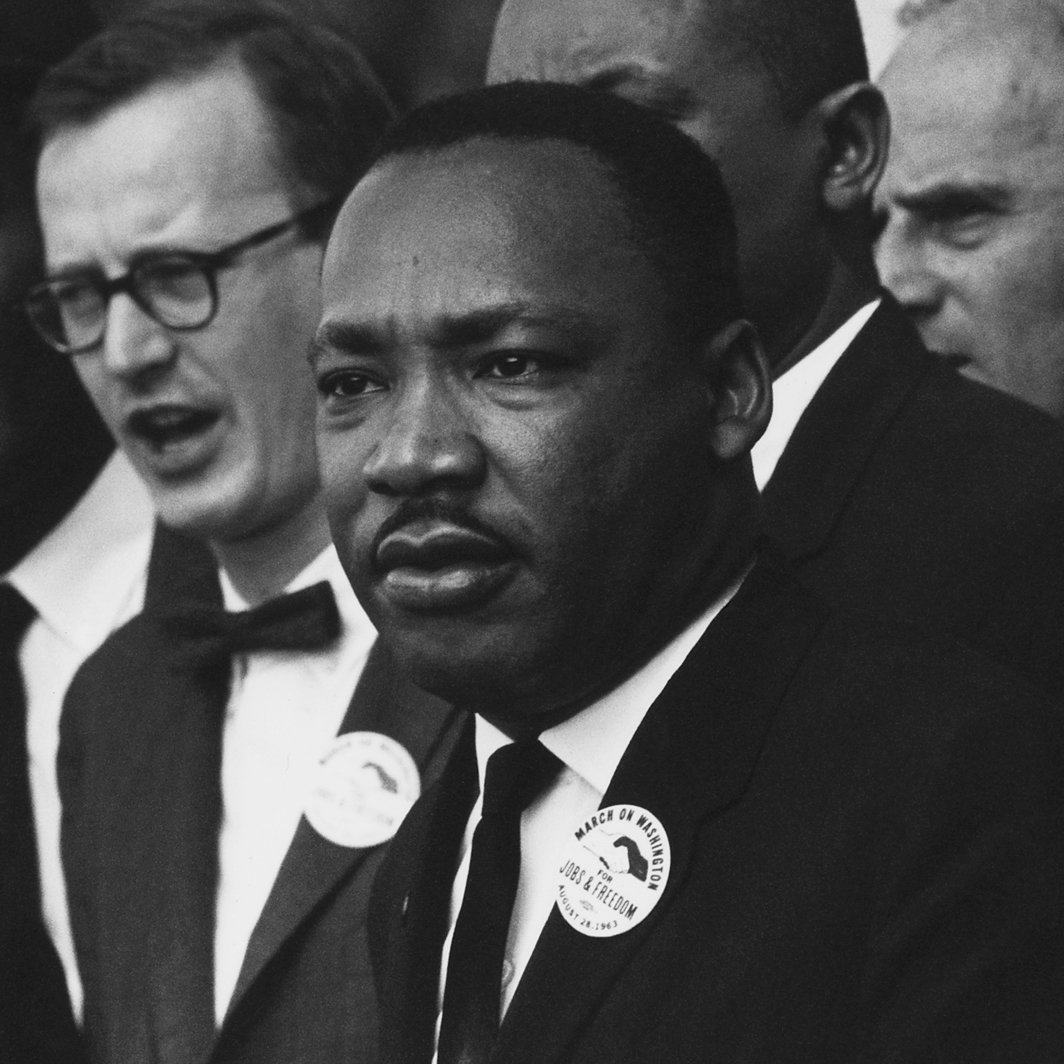

The 20th century witnessed great changes around the world — socially, politically, and economically. While many of the seismic shifts worldwide involved people throwing off the yoke of colonialism, in the United States change centered on the fight for civil rights. Americans were reminded of that struggle on April 27, when Netflix began streaming a four-hour film on the life of Robert F. Kennedy, who made civil rights a major part of his campaign for president in 1968 until he was assassinated.
The battle to gain equality for African Americans was the dominant theme of the civil rights movement of the 20th century, but it was not the only one. Other movements included women’s suffrage, and equal rights for workers and the gay community. 20th-century activism had its antecedents in the late 19th-century when reformers were referred to as muckrakers, progressives, anti-monopolists, labor advocates, social reformers, and women’s rights supporters.
24/7 Wall St. is taking this opportunity to acknowledge the accomplishments and courage of inspiring figures by listing the 50 most important civil rights leaders of the 20th century. While Americans tend to see the struggle for civil rights through an American prism, important movements around the world in which oppressed people gained their freedom and liberty had their champions, too. Leaders such as Mohandas Gandhi in India and Nelson Mandela in South Africa are also included on this list.
Click here to see the most important civil rights leaders of the 20th century.
Click here for detailed findings and methodology.
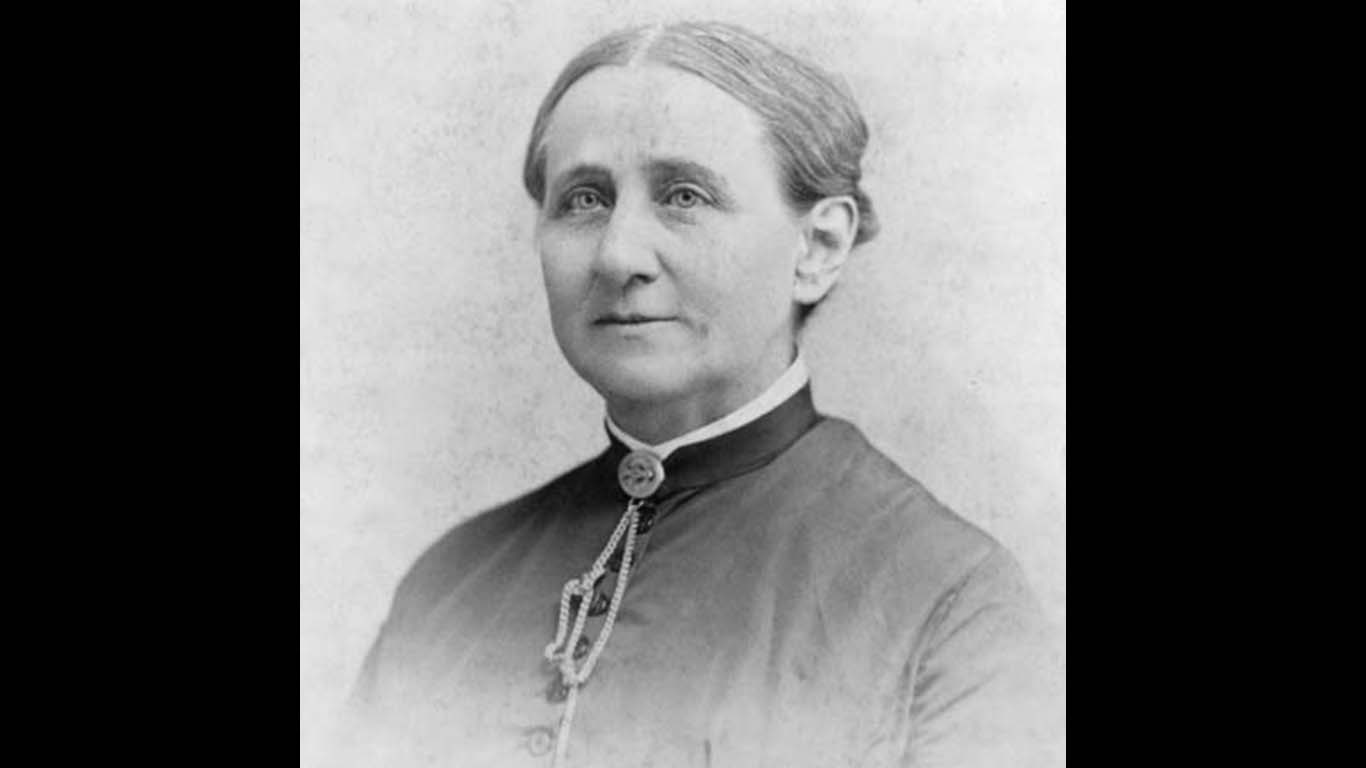
1. Antoinette Brown Blackwell (1825-1921)
> Occupations: Writer, philosopher, and minister
> Cause: Women’s suffrage
Blackwell, co-founder of the American Woman Suffrage Association, along with Lucy Stone in 1869, believed that education and employment were as important for women to attain as the right to vote.
[in-text-ad]
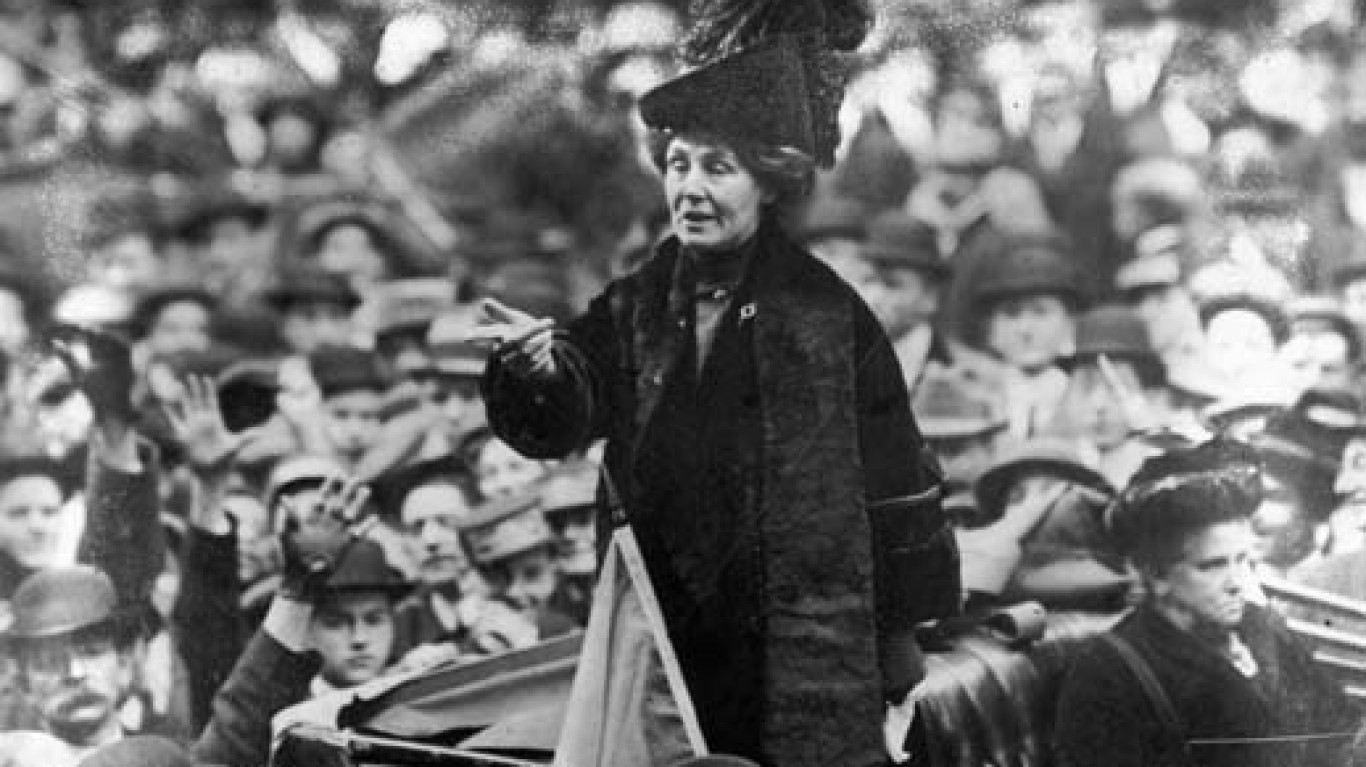
2. Emmeline Pankhurst (1858-1928)
> Occupations: Politician, social activist
> Cause: Women’s suffrage
With Pankhurst as its founder and leader, the British suffragette movement disrupted English society with demonstrations, hunger strikes, and acts of violence. Female suffrage became a reality in Great Britain a month after her death.
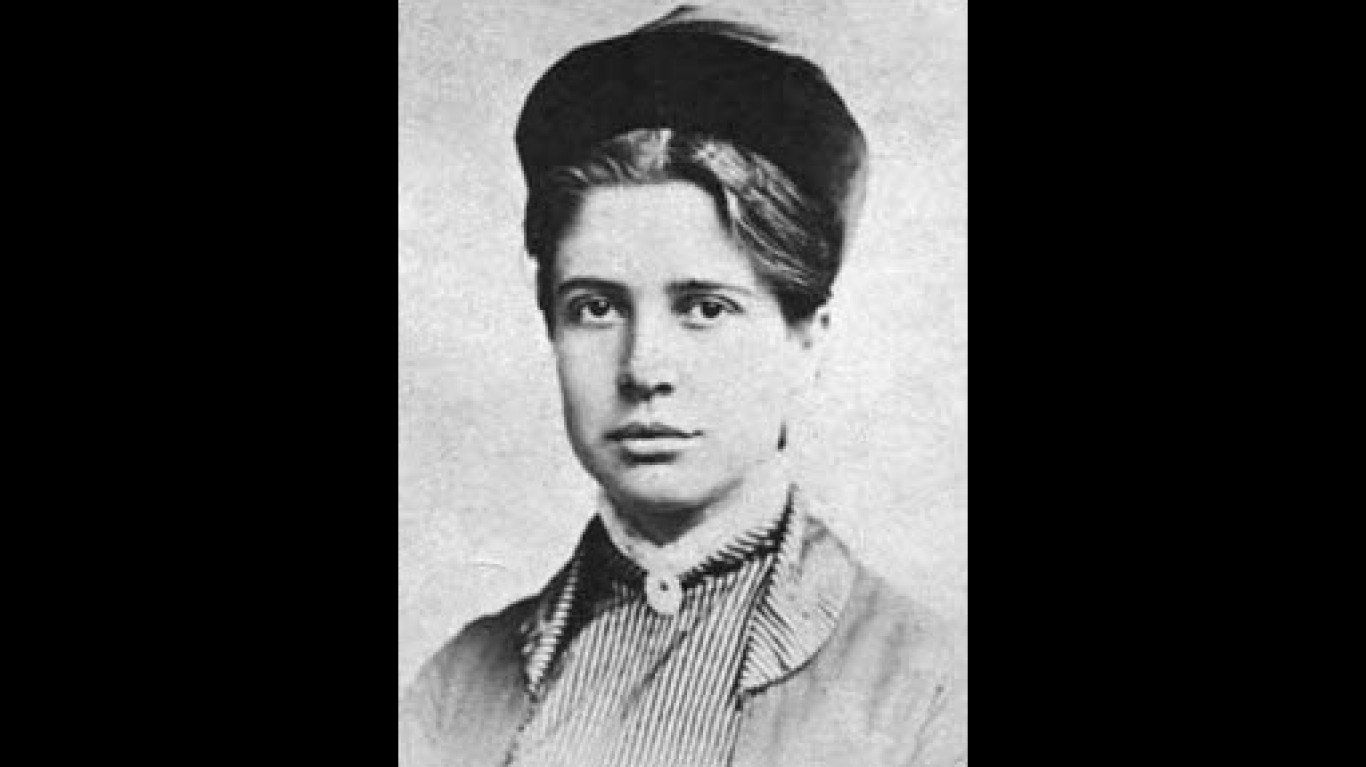
3. Florence Kelley (1859-1932)
> Occupations: Civil rights, children’s right activist
> Cause: Children’s rights
As a social reformer and a child welfare advocate, Kelley championed the passage of the United States’ Pure Food and Drug Act of 1906 as well as other laws to regulate work hours and establish a minimum wage.
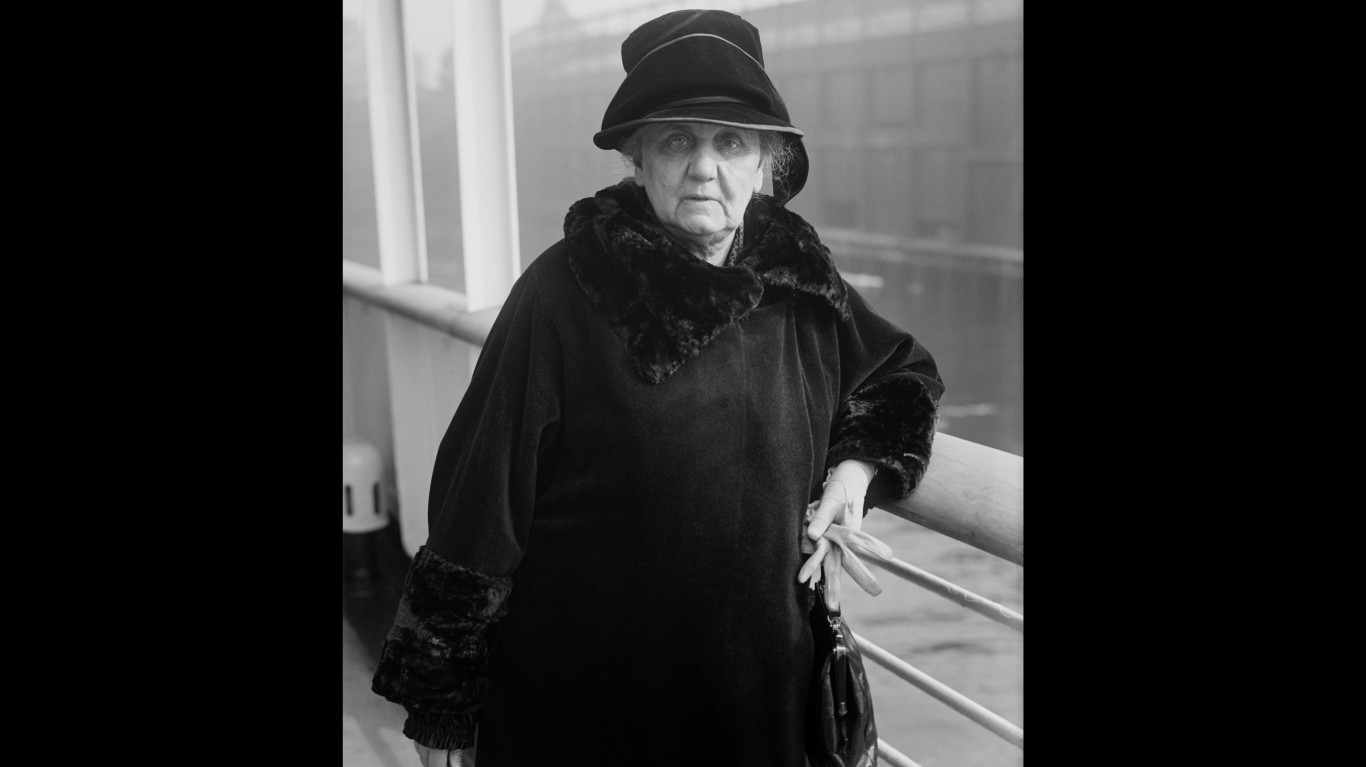
4. Jane Addams (1860-1935)
> Occupations: Physician, author, philosopher, social worker, and sociologist
> Cause: Social reform
An American social reformer and trailblazer in the field of social work, Addams co-founded Hull House in Chicago. In 1931 she shared the Nobel Peace Prize after taking leadership roles to advance anti-war causes.
[in-text-ad-2]

5. W.E.B. Du Bois (1868-1963)
> Occupations: Professor, historian, journalist, and philosopher
> Cause: Civil rights for African-Americans
The American scholar and writer Du Bois founded the National Association for the Advancement of Colored People. Under his leadership, the NAACP became a leading voice in advocating for anti-lynching legislation in the decade after World War I.
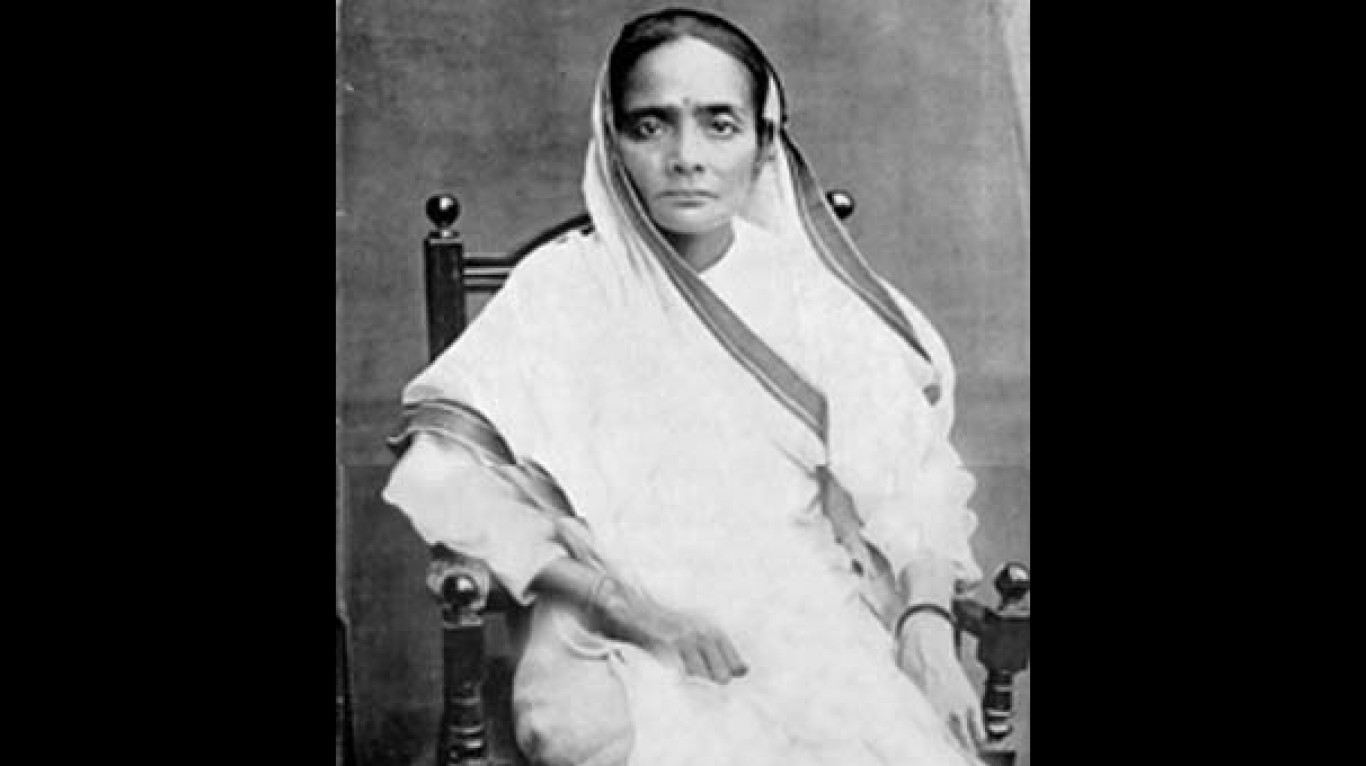
6. Kasturba Gandhi (1869-1944)
> Occupation: Political activist
> Cause: India’s freedom
Married to the pacifist and national liberation leader Mohandas Gandhi, Kasturba Gandhi was a political activist in India in her own right. When her husband was imprisoned, she sometimes raised the protest banner for his causes.
[in-text-ad]
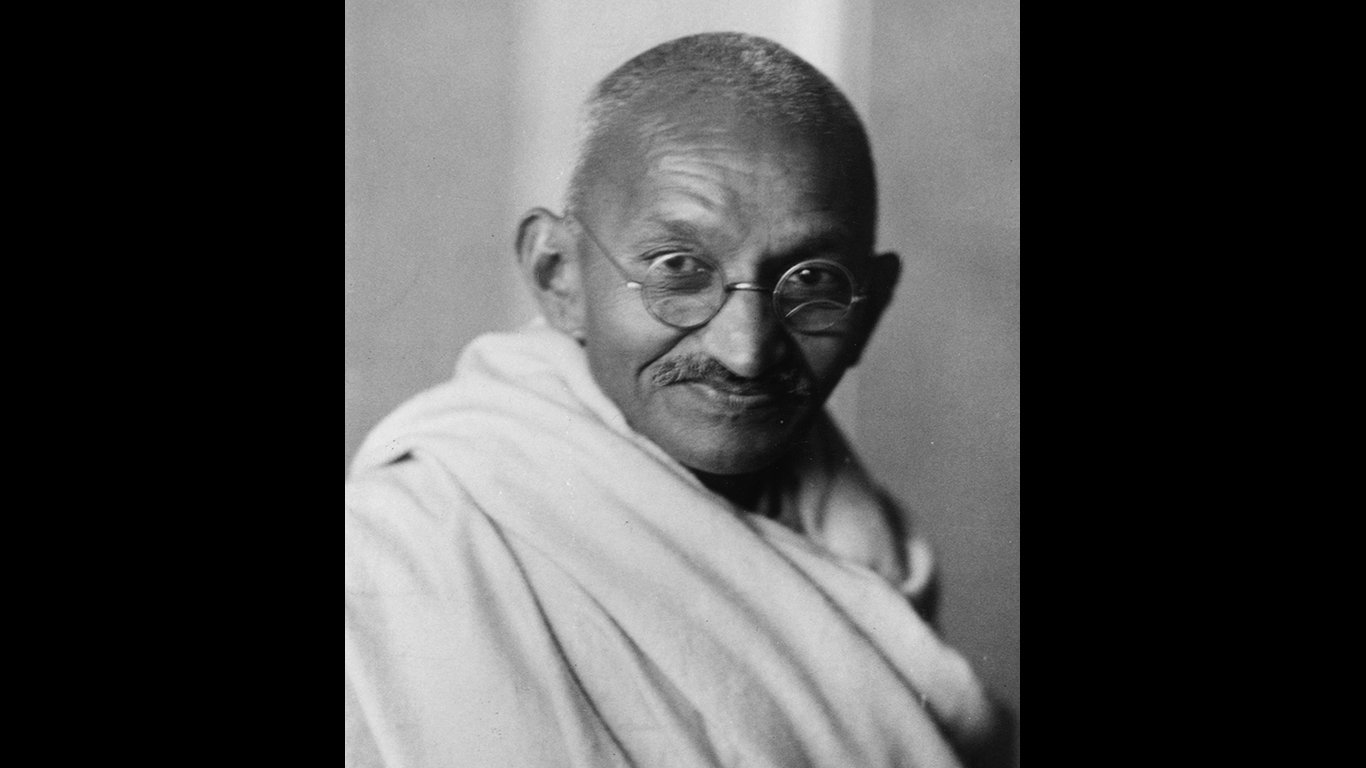
7. Mohandas Gandhi (1869-1948)
> Occupations: Lawyer, author, philosopher, and politician
> Cause: India’s freedom
One of the most famous proponents of nonviolence, Mohandas Gandhi helped liberate India from the British Empire, leading to the creation of the world’s largest democracy.
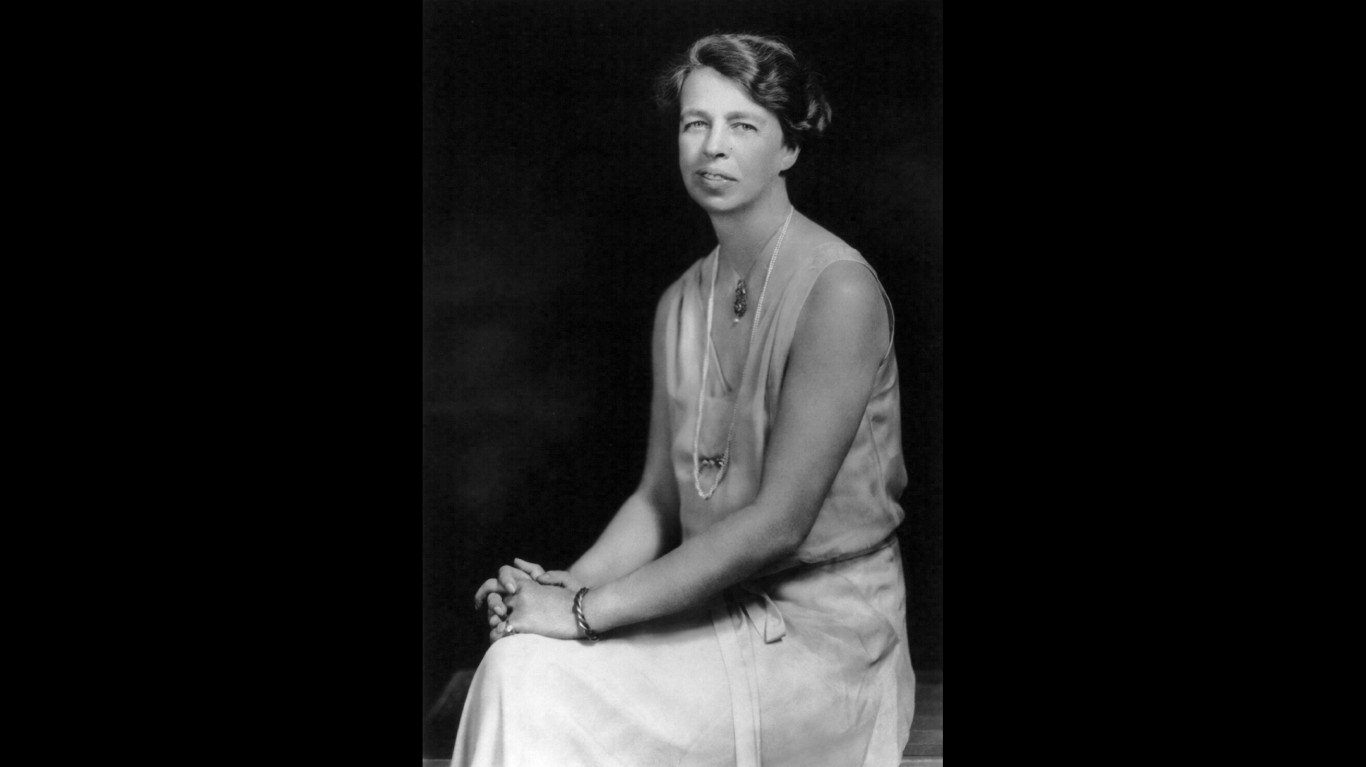
8. Eleanor Roosevelt (1884-1962)
> Occupations: Author and diplomat
> Cause: Human rights
Roosevelt was an activist for women’s rights and human rights in the United States and at the United Nations. After the death of her husband President Franklin D. Roosevelt in 1945, she served as the chair of the U.N.’s Human Rights Commission and pressed for the successful adoption of the Universal Declaration of Human Rights.
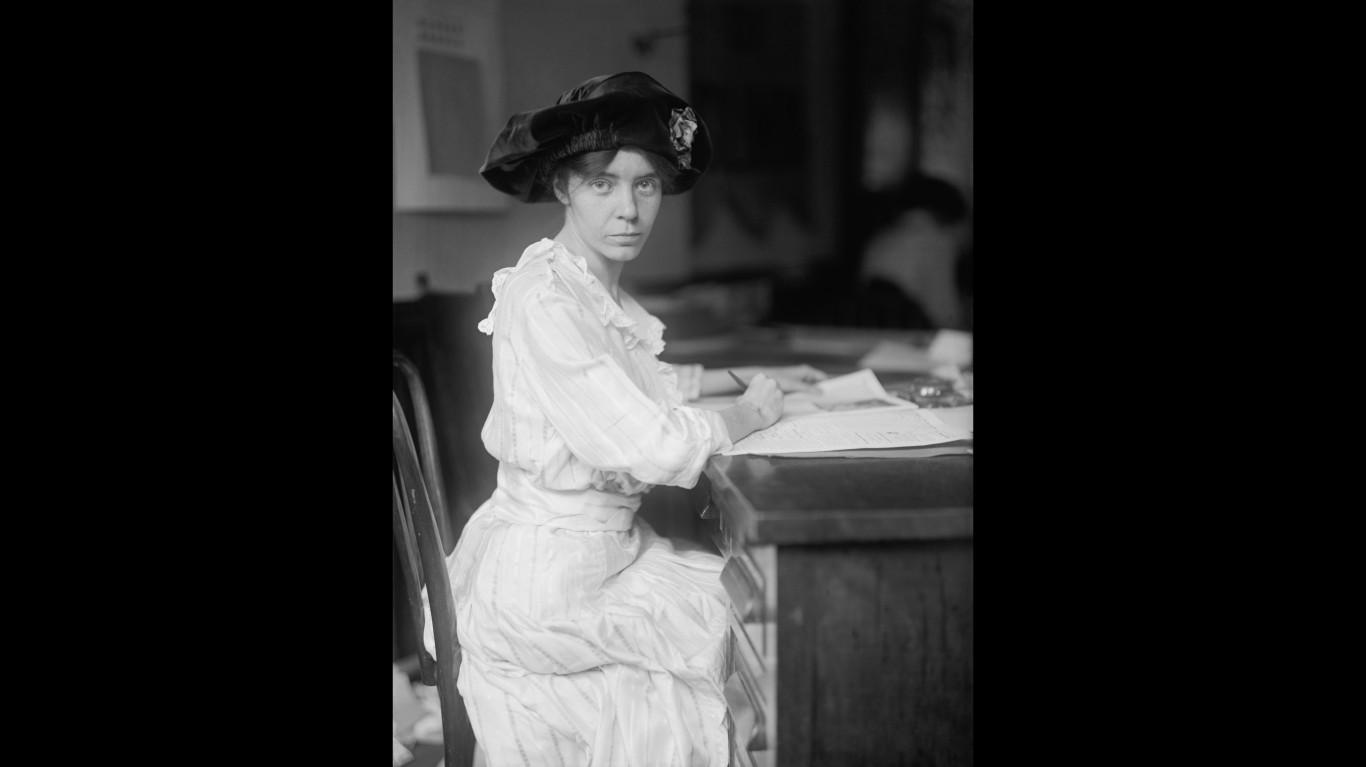
9. Alice Paul (1885-1977)
> Occupation: Author and political activist
> Cause: Women’s rights
A leader in the movement to secure female suffrage in Great Britain and the United States, Paul was a vigorous champion for passage of the 19th Amendment, which granted American women the right to vote.
[in-text-ad-2]
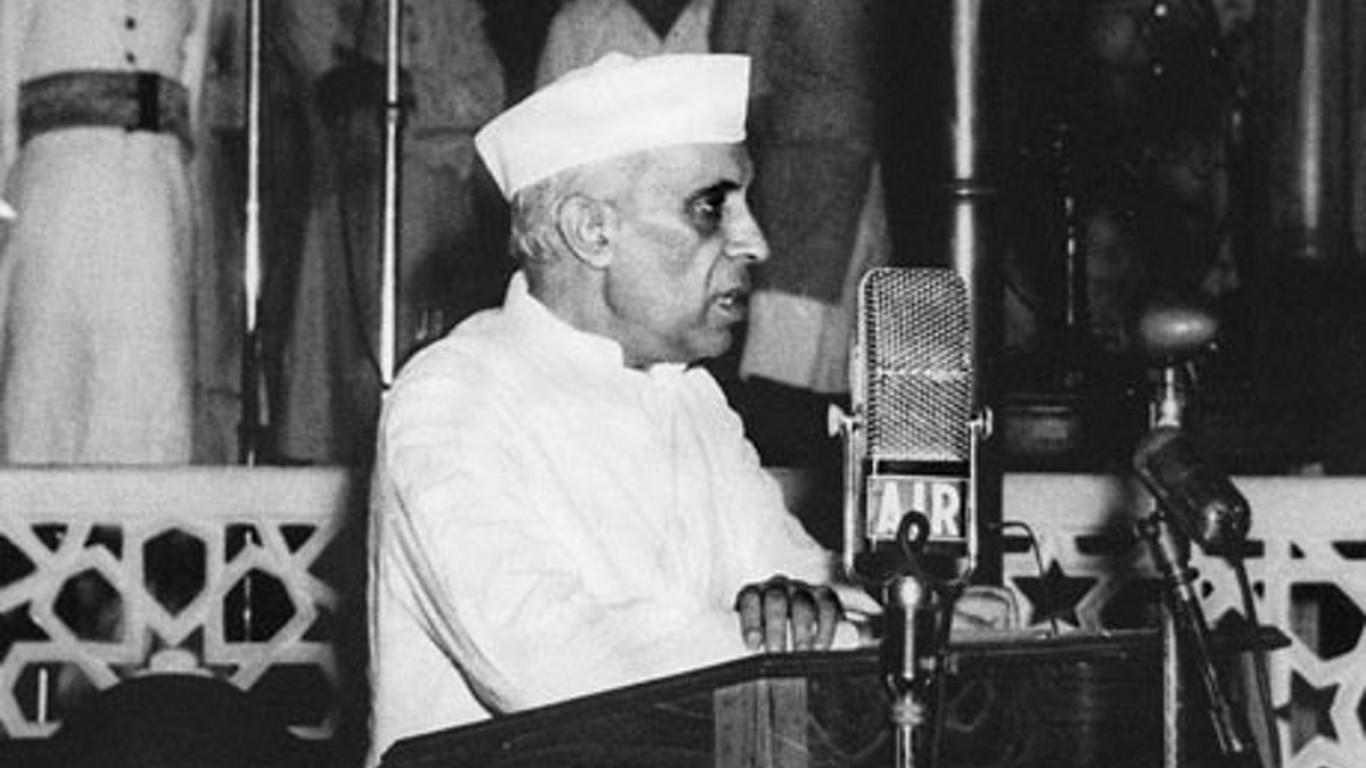
10. Jawaharlal Nehru (1889-1964)
> Occupations: Author, lawyer, architect, and politician
> Cause: India’s freedom
Nehru was India’s first prime minister and an advocate for freedom of the press. He managed India’s transition from British colony to the world’s biggest democracy.
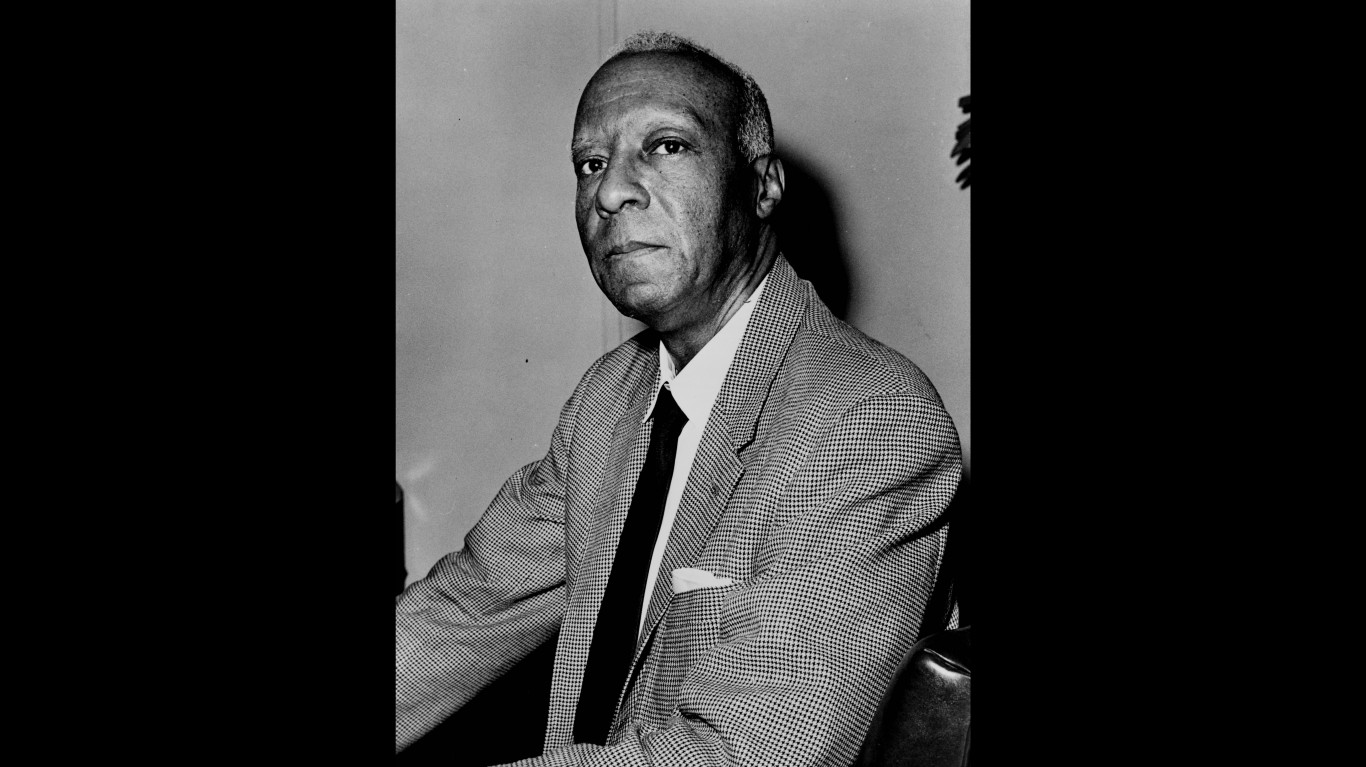
11. A. Philip Randolph (1889-1979)
> Occupations: Politician and trade unionist
> Cause: Organizing African-American workers
Randolph was a driving force behind the movement to desegregate the U.S. military. He also was a strong labor organizer of African-American workers.
[in-text-ad]
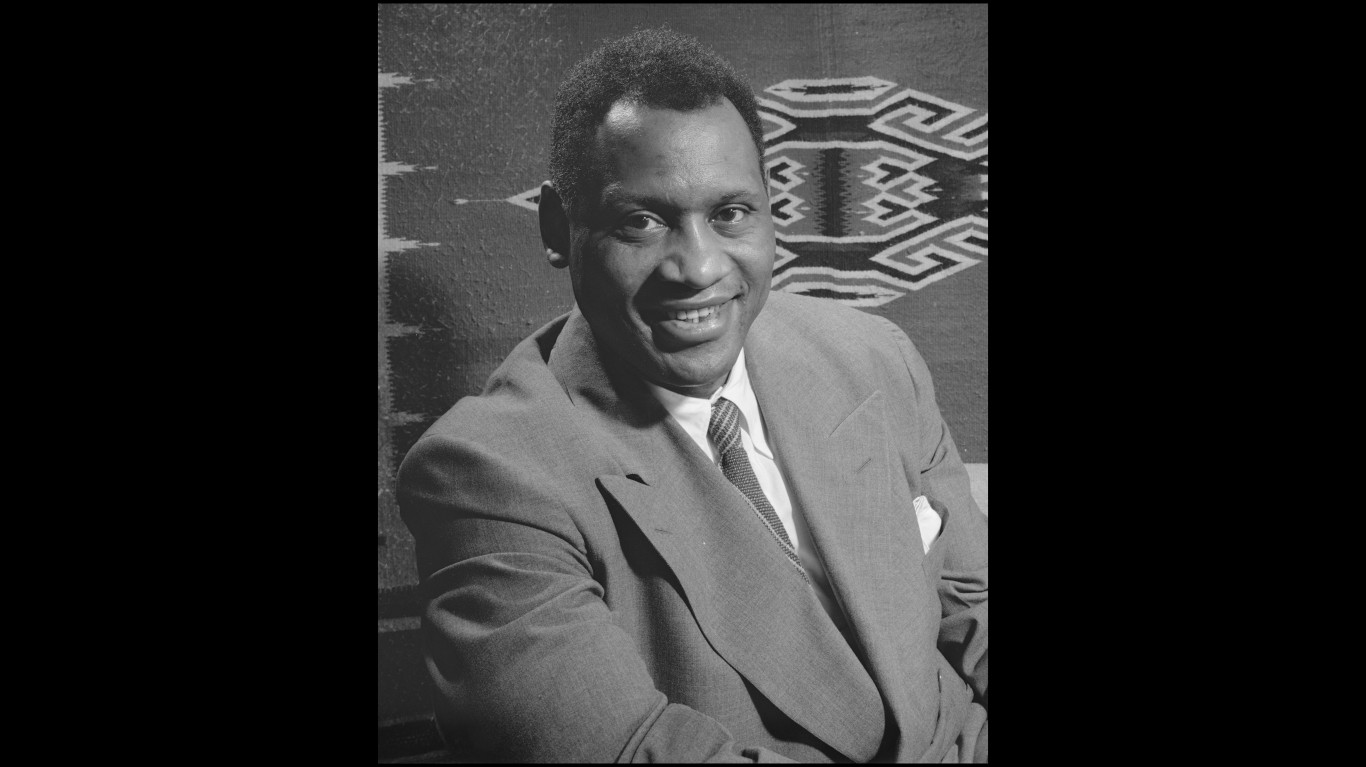
12. Paul Robeson (1898-1976)
> Occupations: Athlete, singer, actor, lawyer, and politician
> Cause: Peace and union causes
Robeson was a multi-talented African-American who backed African independence, unions, promoted African-American culture and civil liberties, and supported Jewish refugees fleeing Hitler’s Germany.
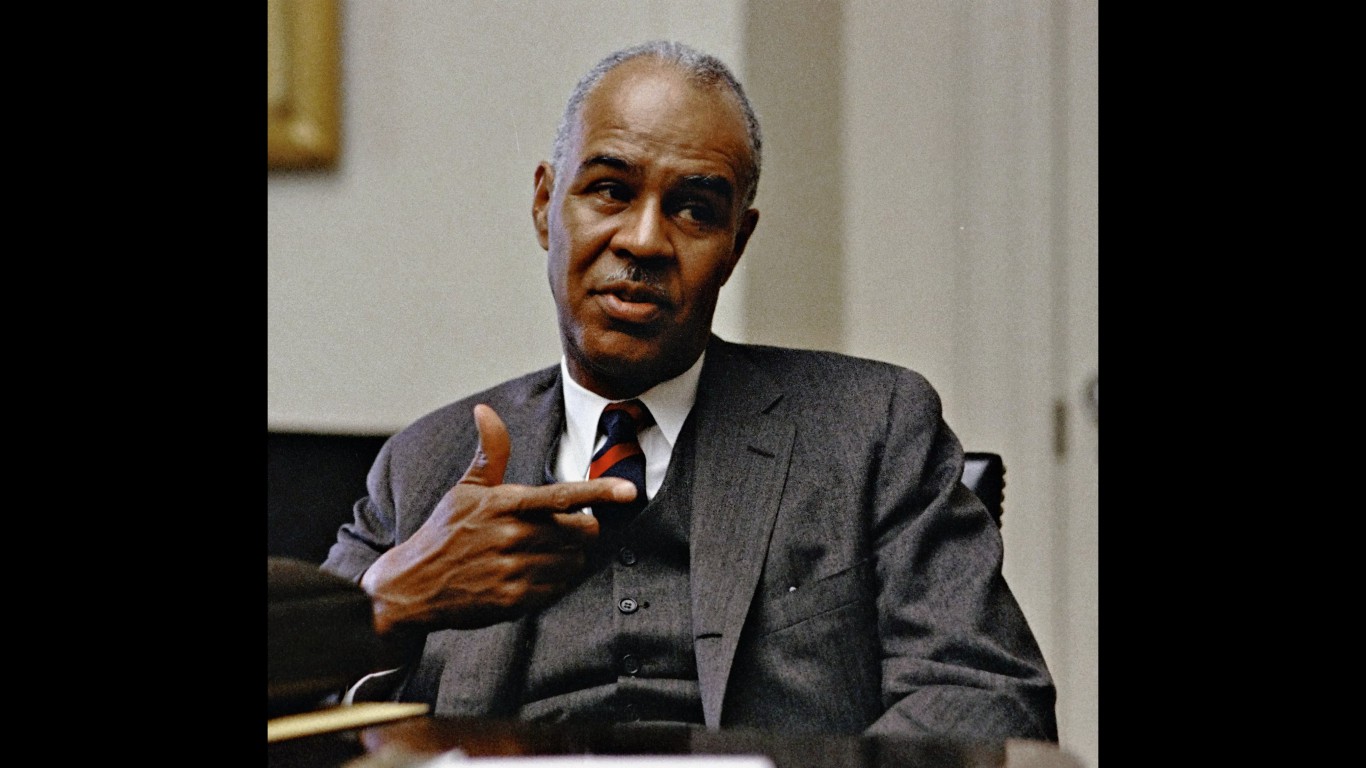
13. Roy Wilkins (1901-1981)
> Occupation: Journalist, activist
> Cause: African-American businesses
Wilkins helped extend loans to creditworthy African-Americans who had been denied loans by banks in Tennessee. He also co-founded the civil rights coalition group the Leadership Conference on Civil Rights.
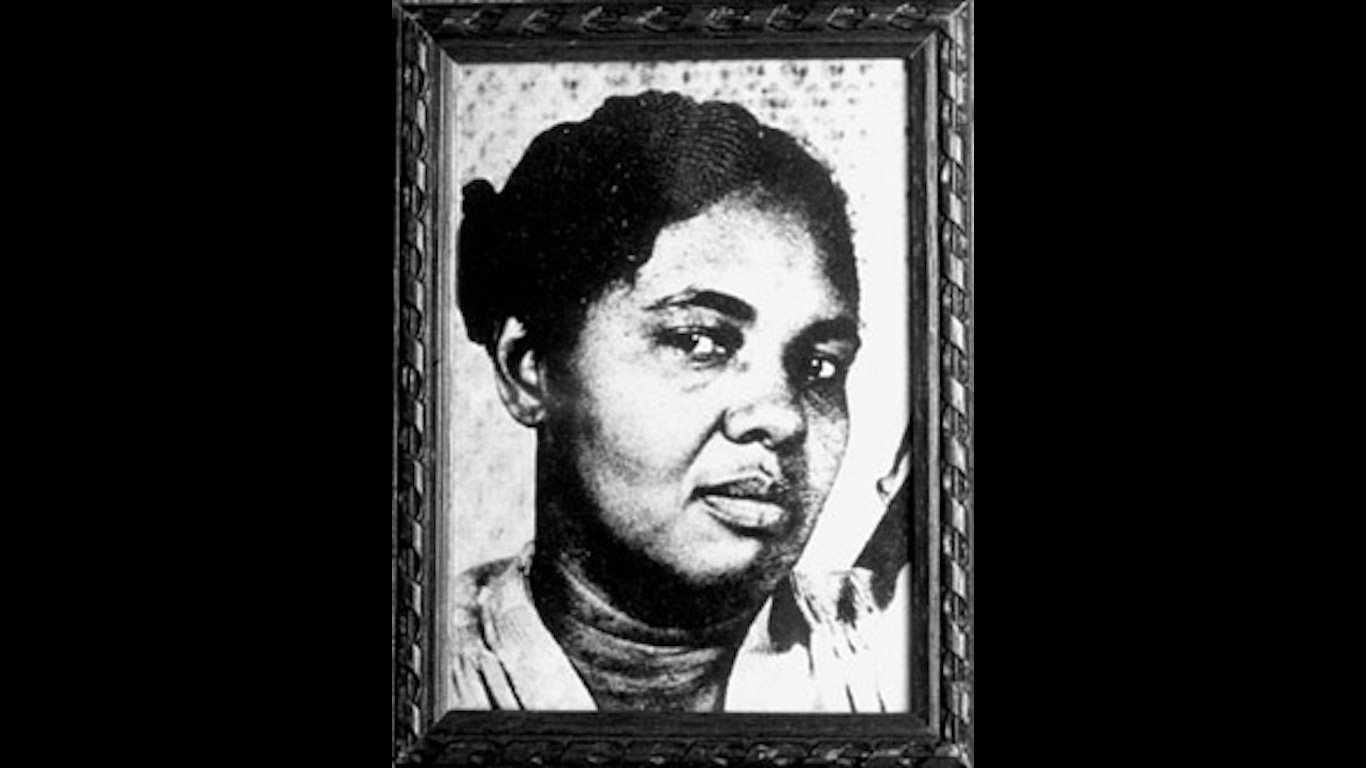
14. Harriette Moore (1902-1951)
> Occupation: Educator
> Cause: Better pay for African-American teachers
Harriette Moore was a teacher and civil rights activist who advocated for higher wages for African-American teachers, She was killed in Florida at the start of the modern civil rights movement.
[in-text-ad-2]
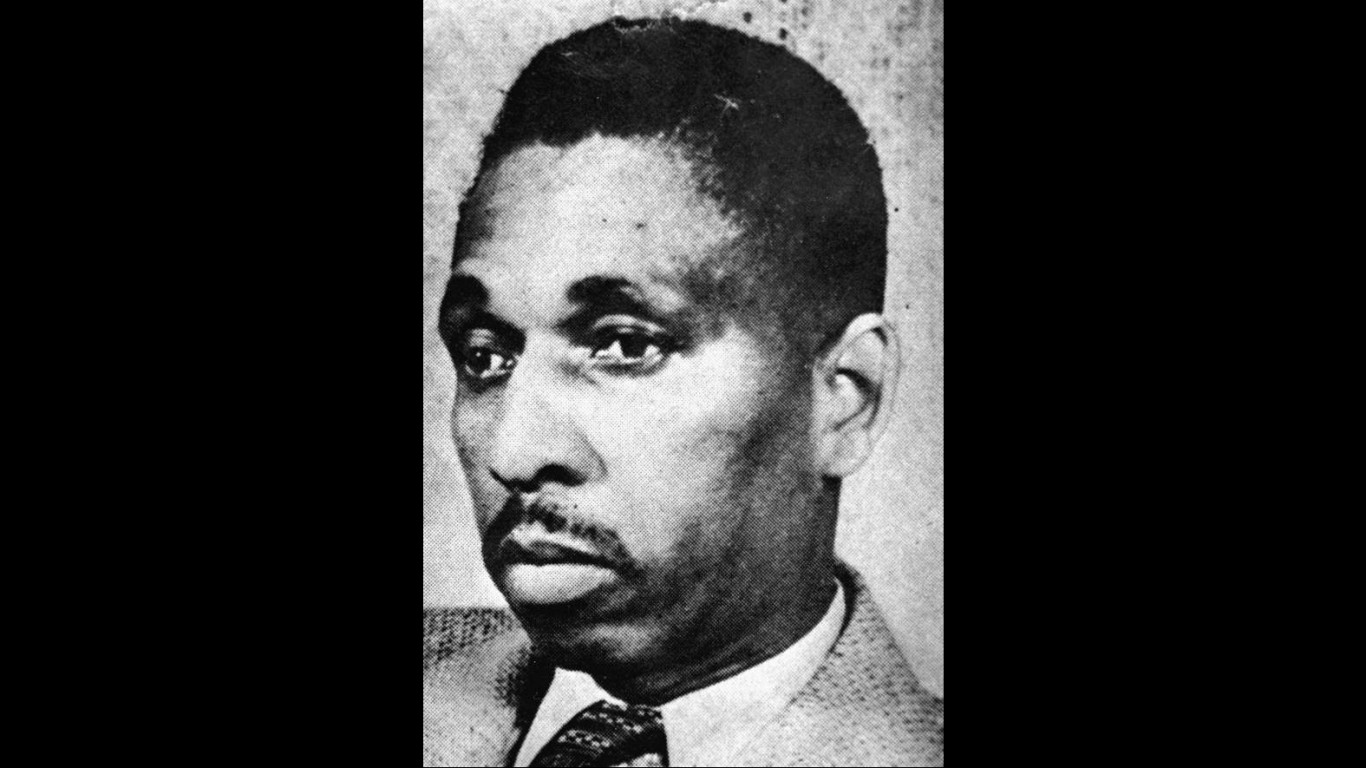
15. Harry T. Moore (1905-1952)
> Occupation: Teacher
> Cause: Better pay for African-American teachers
Harry T. Moore was a teacher and civil rights activist assassinated in Florida along with his wife when his car was bombed. He and his wife were considered to be the first fatalities of the modern civil rights movement.
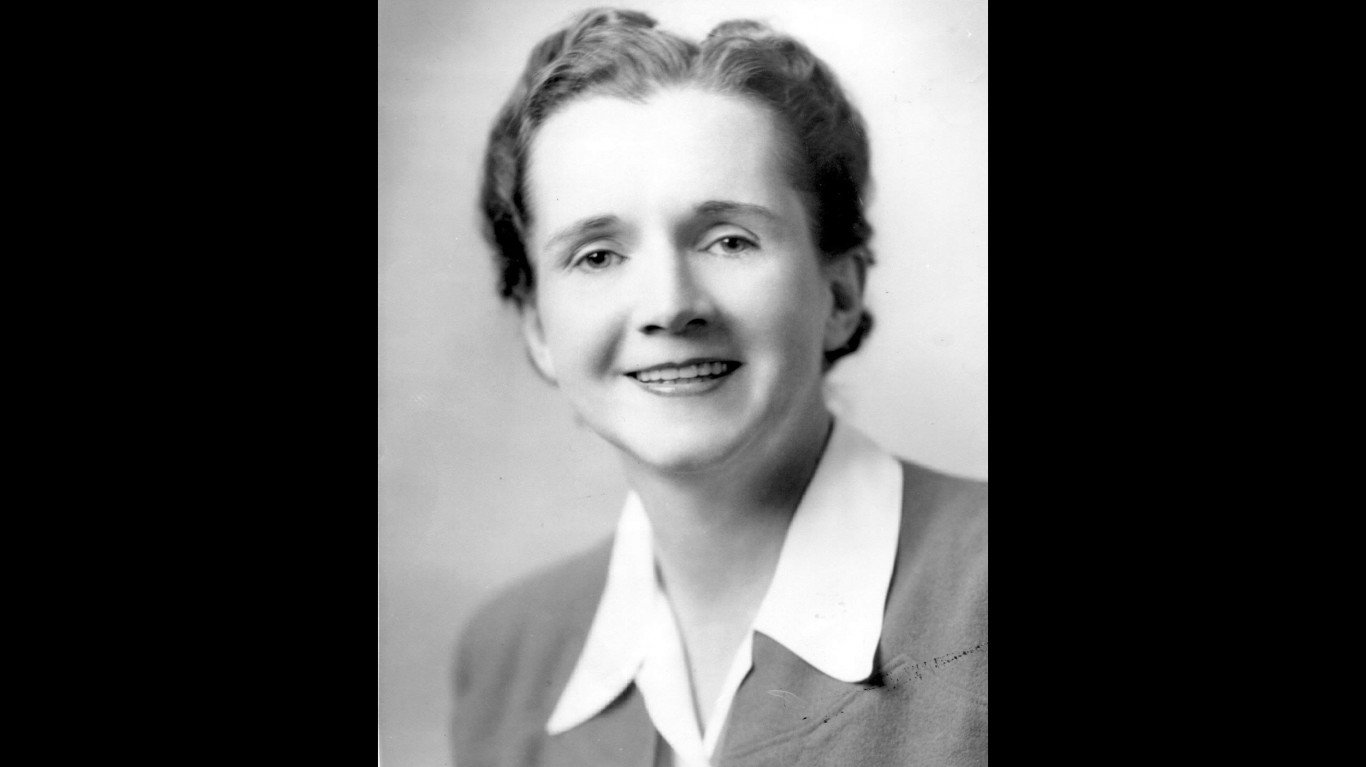
16. Rachel Carson (1907-1964)
> Occupations: Author and biologist
> Cause: Environmentalism
Carson wrote the book “Silent Spring” that warned about the dangers of the pesticide DDT. She helped inspire the environmental movement.
[in-text-ad]
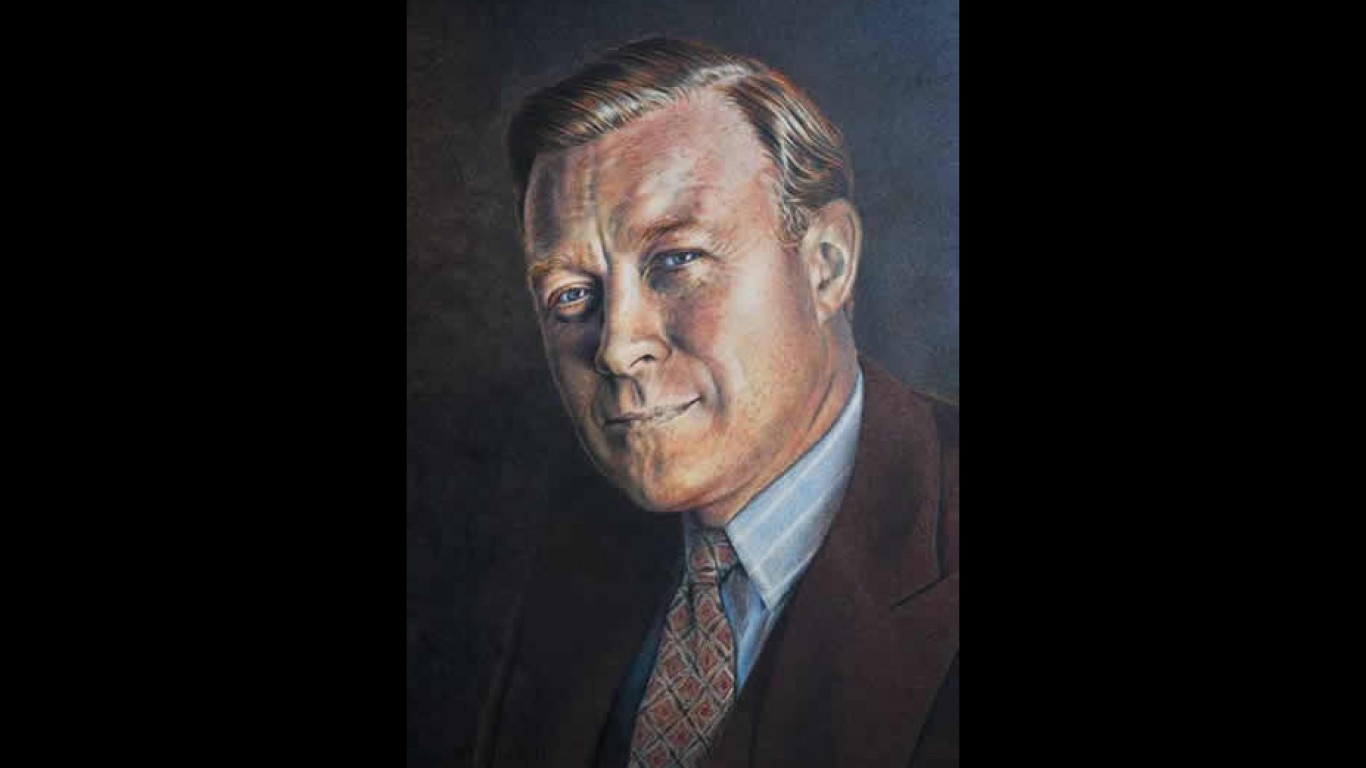
17. Walter Reuther (1907-1970)
> Occupation: Union leader
> Cause: Workers’ rights
As a leader of the United Automobile Workers Union for many decades, Reuther was a strong advocate for workers’ benefits, pensions, and job security. A survivor of several assassination attempts, he was active in the civil rights movement and spoke at the 1963 march on Washington.
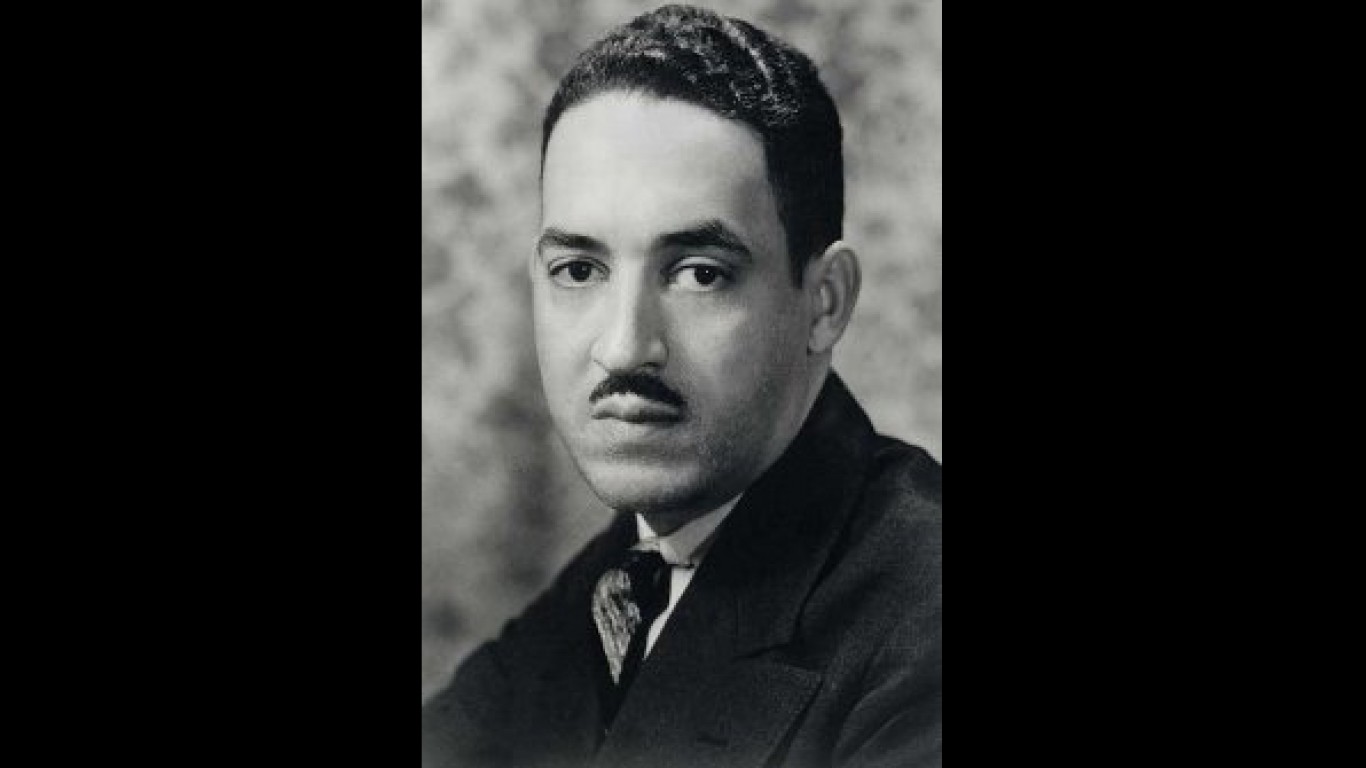
18. Thurgood Marshall (1908-1993)
> Occupations: Lawyer and judge
> Cause: Legal rights for African-Americans
Marshall served as the first African-American Supreme Court justice. As the NAACP’s chief counsel, he led court battles for civil rights.
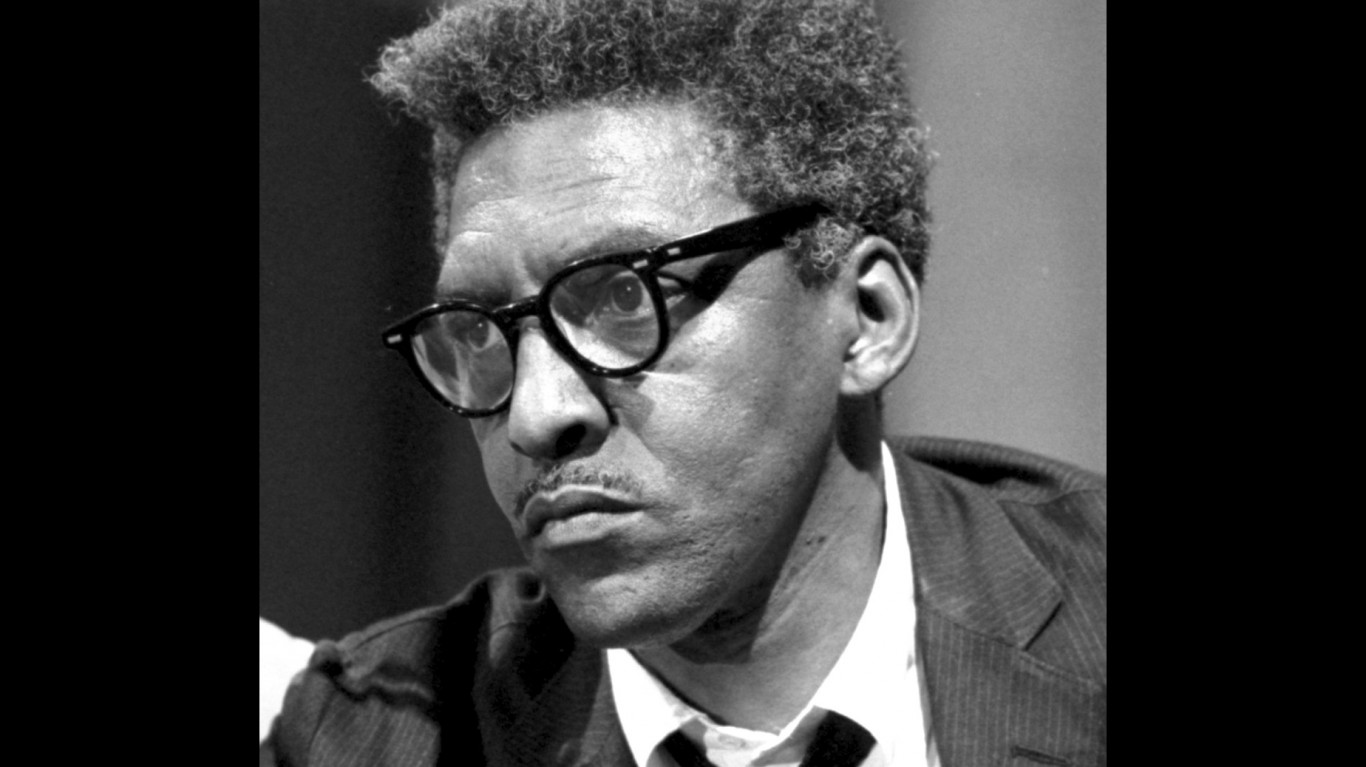
19. Bayard Rustin (1912-1987)
> Occupations: Singer and activist
> Cause: Nonviolent resistance
Rustin was an American civil rights activist, pacifist, and openly gay adviser to Martin Luther King Jr. He and fellow civil rights activist A. Philip Randolph fought against racial discrimination in hiring during World War II.
[in-text-ad-2]
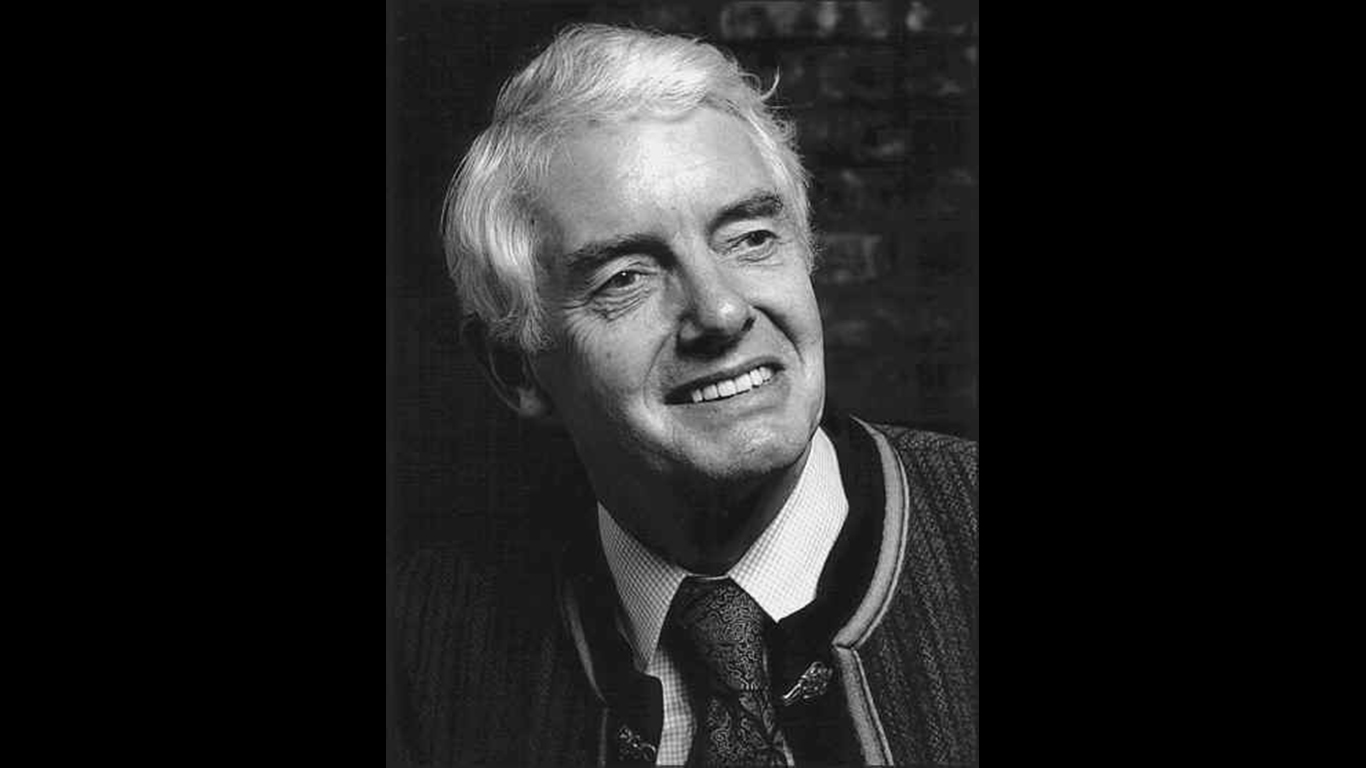
20. David Brower (1912-2000)
> Occupation: Environmentalist
> Cause: Environment
Brower was a pioneer of the environmental movement in United States. He helped gain passage of the Wilderness Act of 1964.
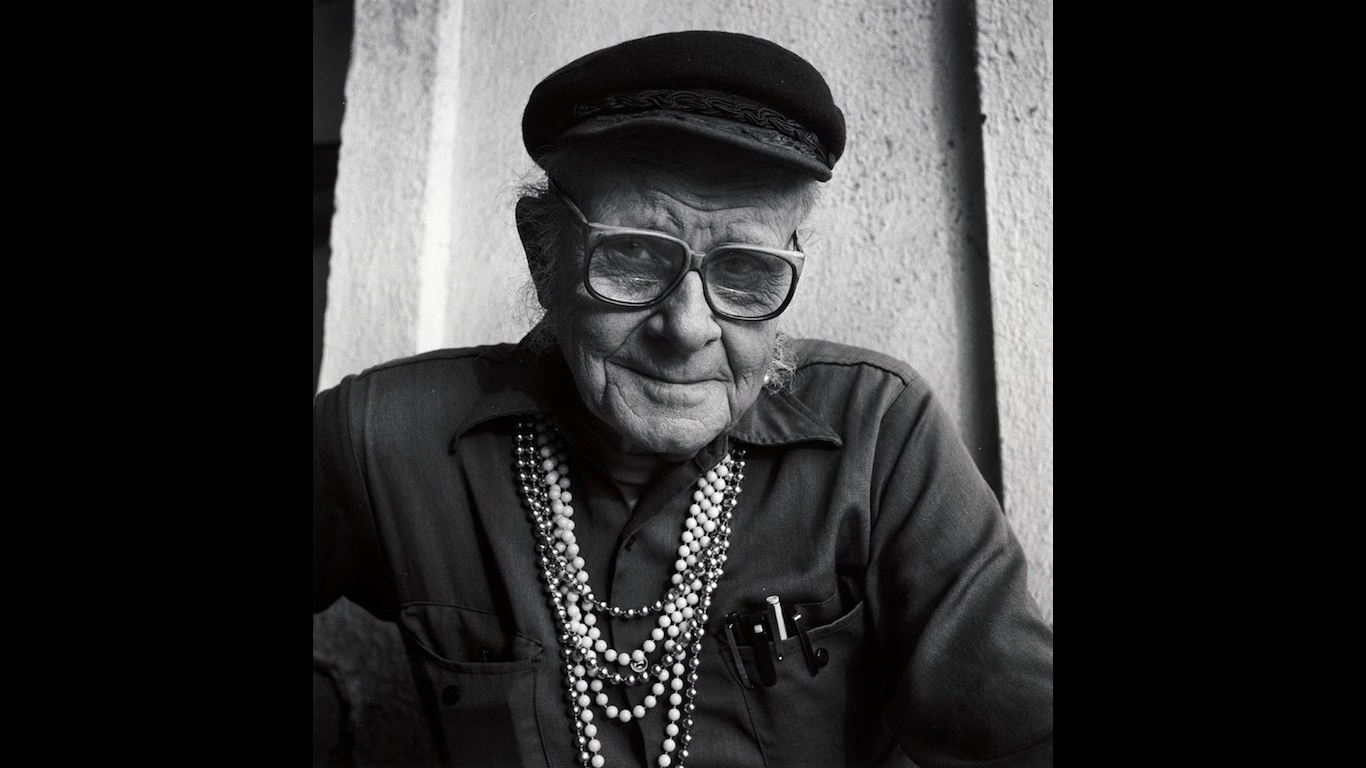
21. Harry Hay (1912-2002)
> Occupations: Actor, film director, and teacher
> Cause: Gay rights
Hay was an early leader of the American gay and lesbian rights movement. In 1950 he started the first modern gay rights group, the Mattachine Society.
[in-text-ad]
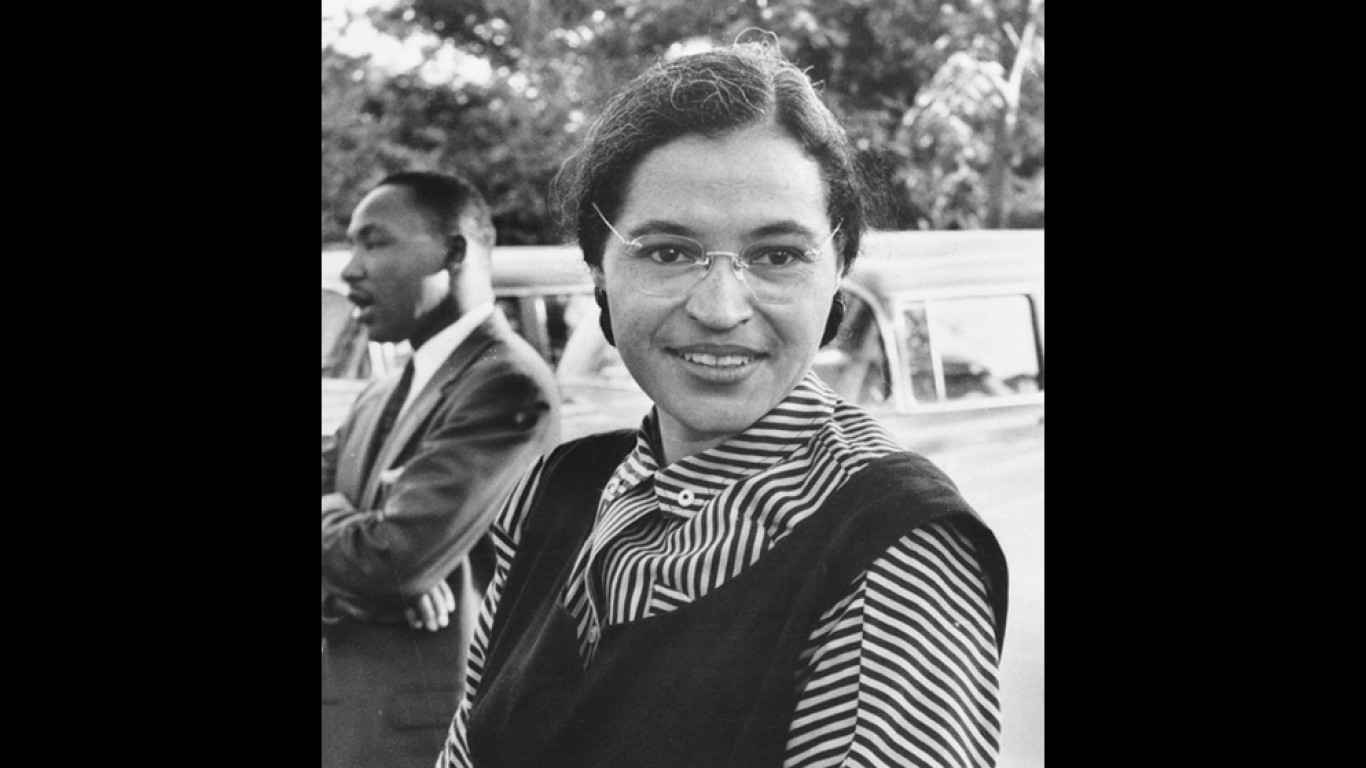
22. Rosa Parks (1913-2005)
> Occupation: Seamstress, civil rights activist
> Cause: Equality in accommodations
Parks refused to give up her seat on a bus for a white passenger in Montgomery, Alabama. She became the inspiration for the Montgomery bus boycott.
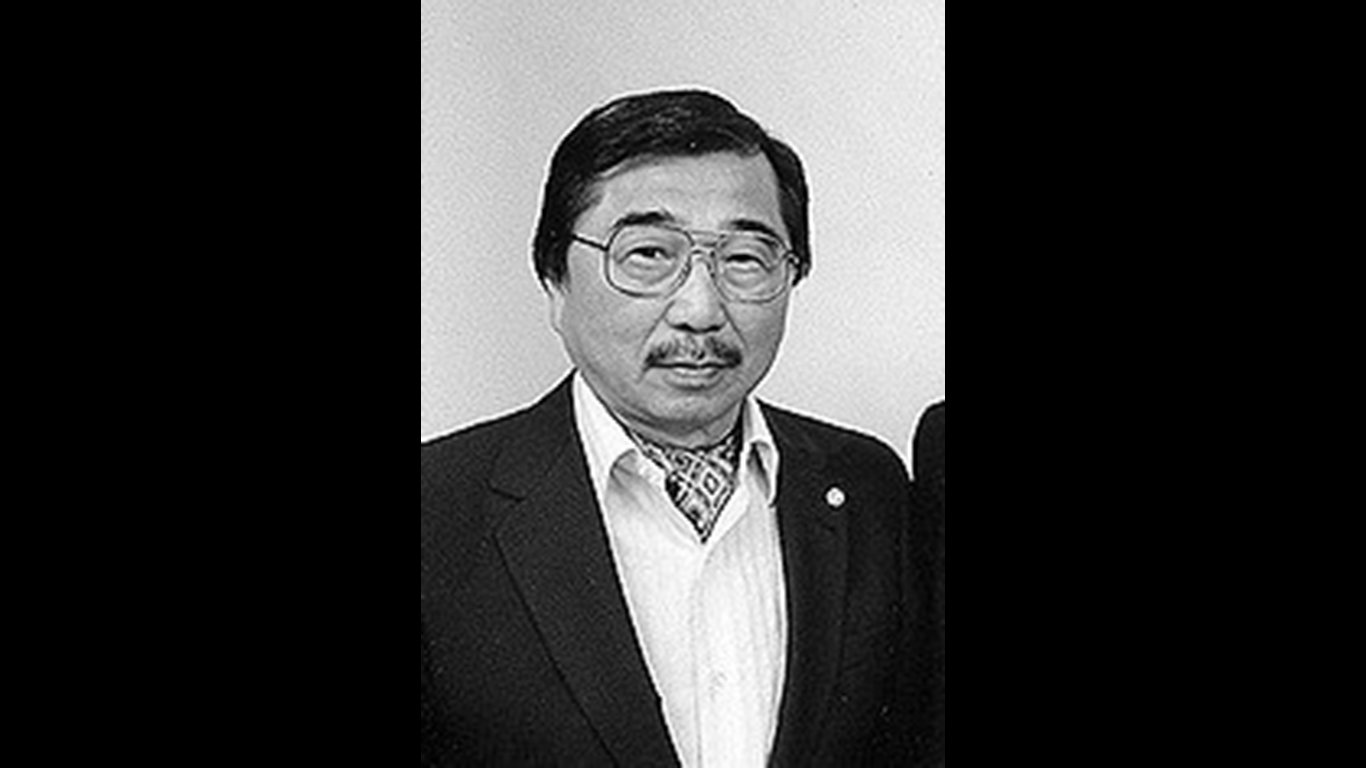
23. Gordon Hirabayashi (1918-2012)
> Occupations: Sociologist
> Cause: Japanese-American rights
After defying the evacuation and internment order for Japanese-Americans during World War II, Hirabayashi was convicted by the U.S. government. His name was cleared four decades later.
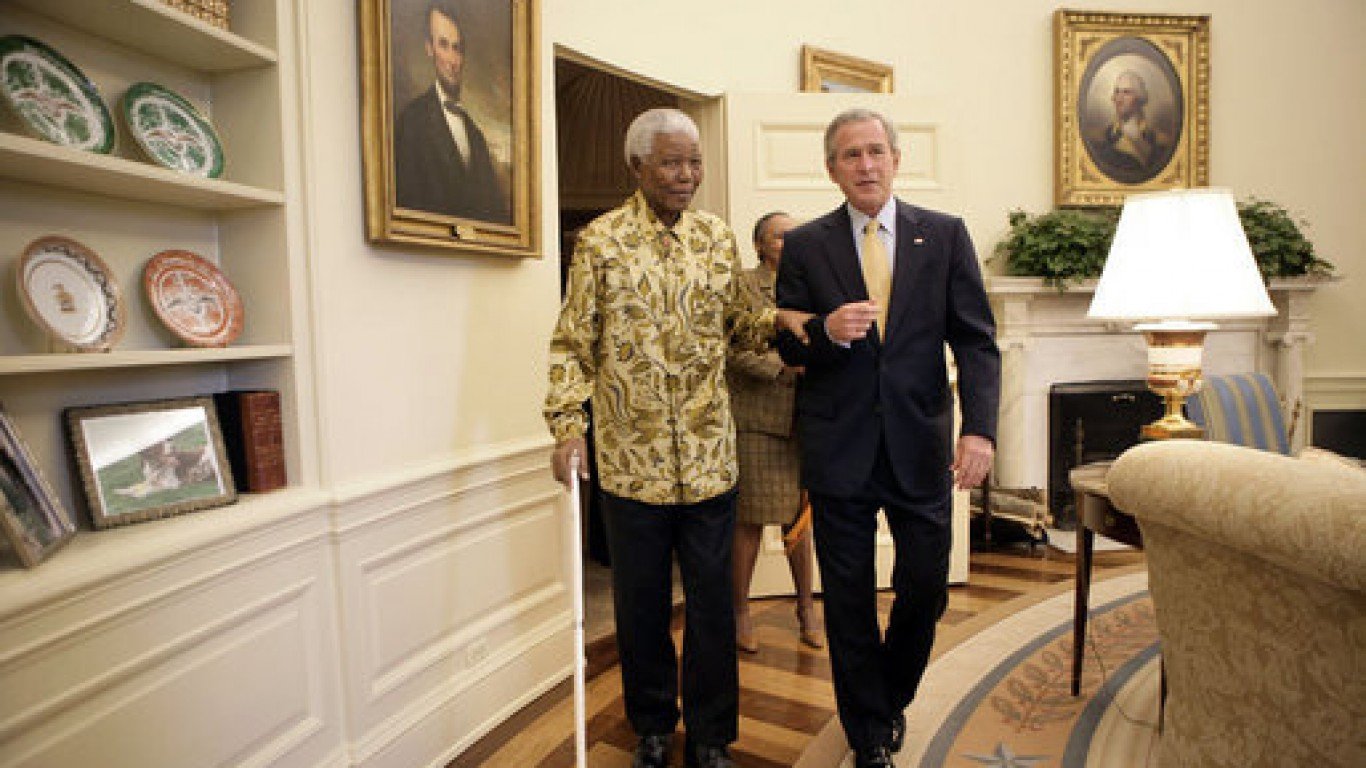
24. Nelson Mandela (1918-2013)
> Occupations: Politician, lawyer, writer, and actor
> Cause: Ending apartheid in South Africa
Mandela led the struggle to end South Africa’s apartheid. He was jailed for 27 years for plotting to overthrow the South African government. After he was freed, he was elected president of South Africa.
[in-text-ad-2]
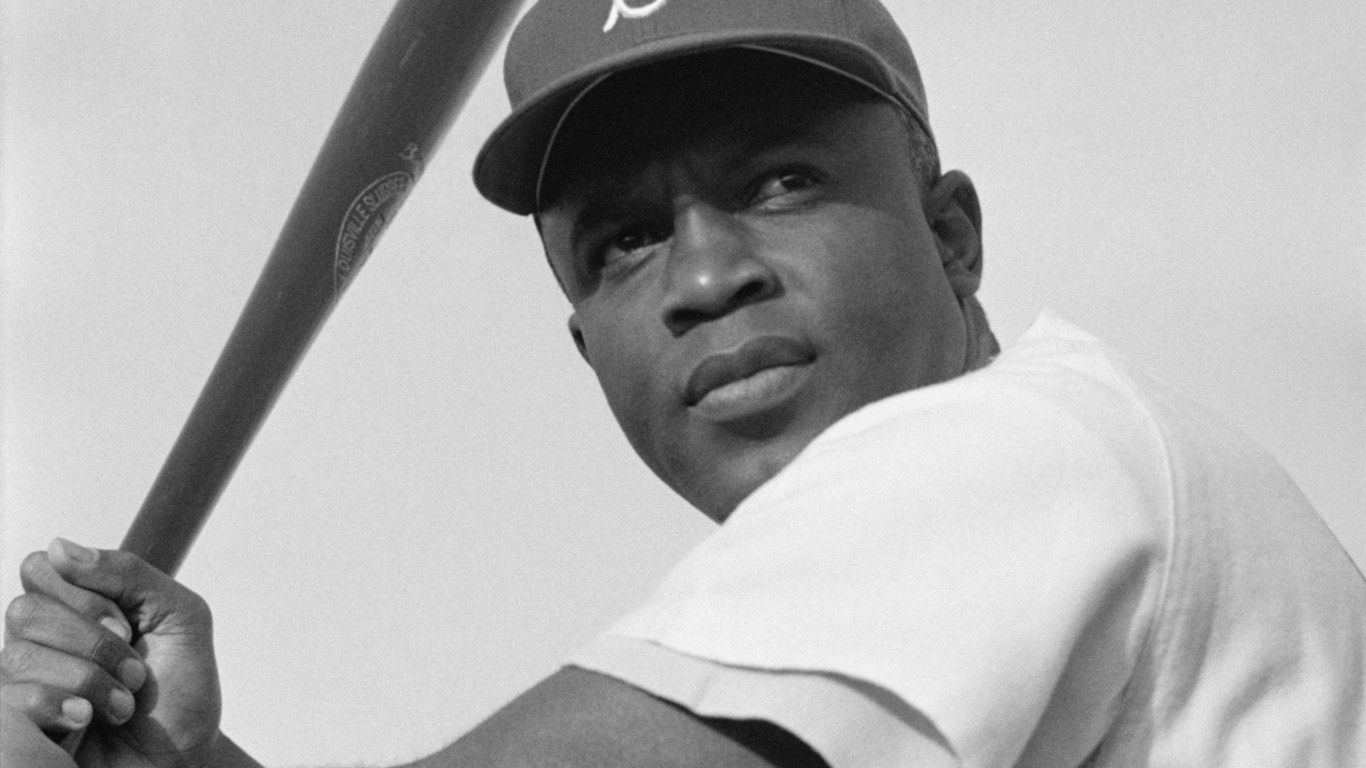
25. Jackie Robinson (1919-1972)
> Occupations: Athlete, actor, and sports commentator
> Cause: Breaking baseball’s color barrier
Robinson broke the color barrier in baseball in 1947, prevailing over unrelenting physical and verbal abuse. The eventual Hall of Famer continued the civil rights fight even after his baseball career concluded.
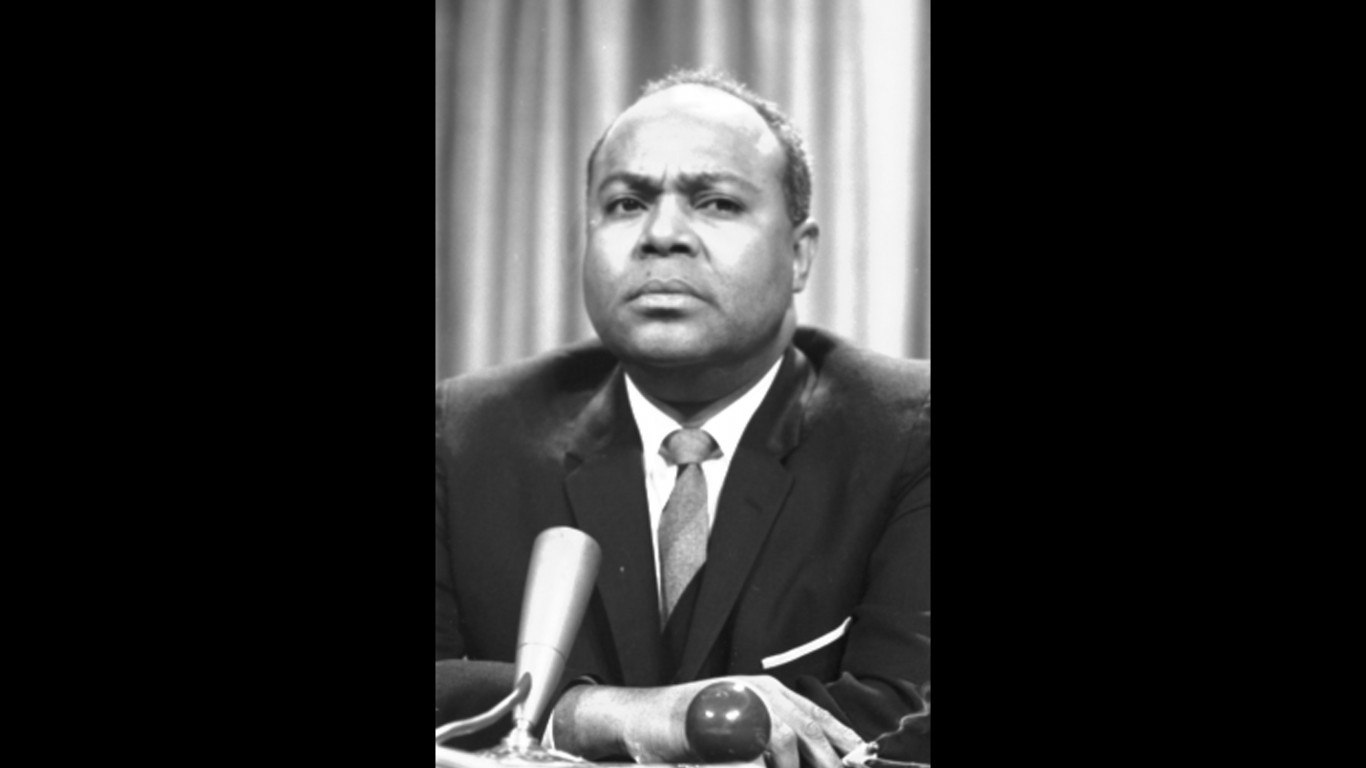
26. James Farmer (1920-1999)
> Occupations: Author and politician
> Cause: Desegregating travel
As a leader of the Congress of Racial Equality, Farmer organized Freedom Rides that led to the desegregation of interstate travel.
[in-text-ad]
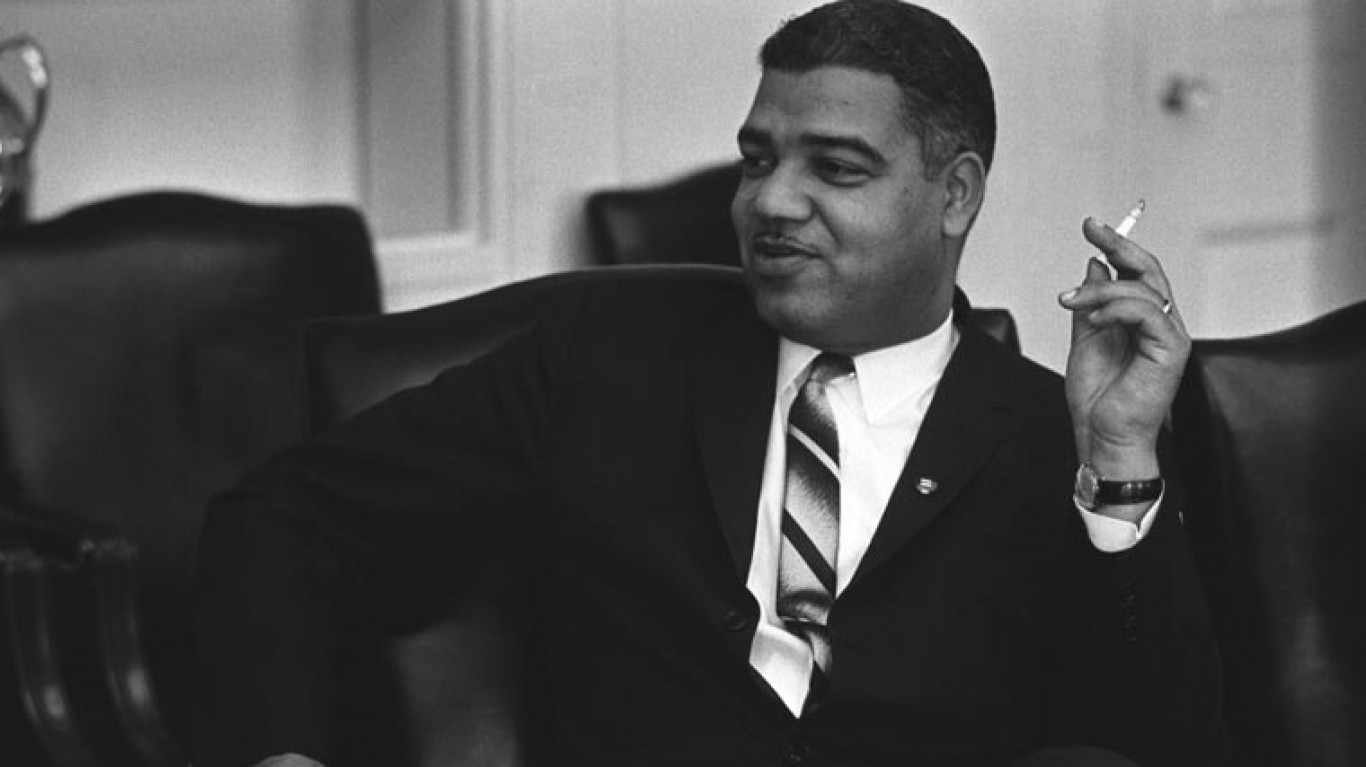
27. Whitney M. Young, Jr. (1921-1971)
> Occupation: Teacher
> Cause: African-American economic empowerment
Executive director of the National Urban League, Whitney M. Young that helped African-Americans adapt to urban life. He also served an adviser to U.S. presidents.
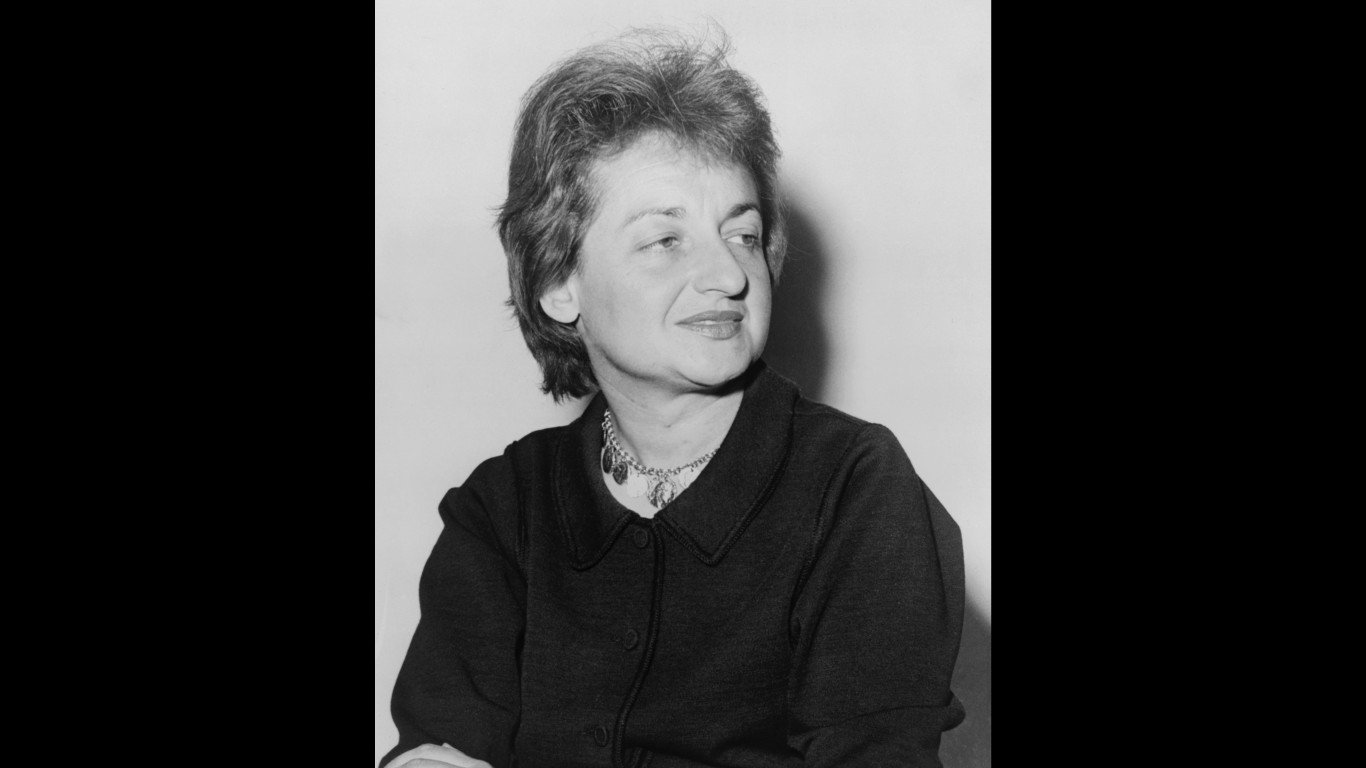
28. Betty Friedan (1921-2006)
> Occupations: Author and actor
> Cause: Feminism
Friedan penned the groundbreaking 1963 social critique “The Feminine Mystique” that was instrumental in launching the feminist movement in the 1960s.
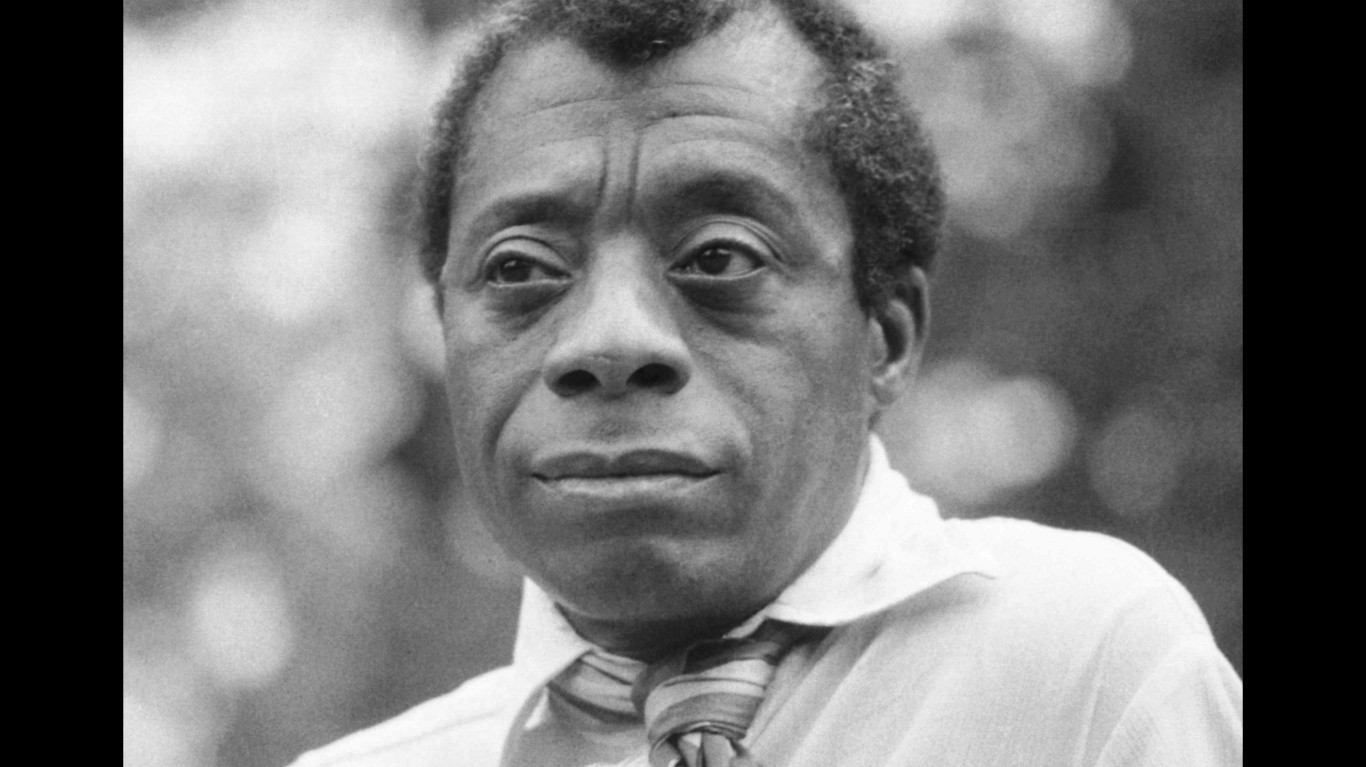
29. James Baldwin (1924-1987)
> Occupations: Playwright, poet, novelist, essayist, and actor
> Cause: Social and racial issues
An essayist and poet, James Baldwin wrote the seminal novel “Go Tell It on the Mountain” in 1953. His works touched on issues of race and spirituality.
[in-text-ad-2]
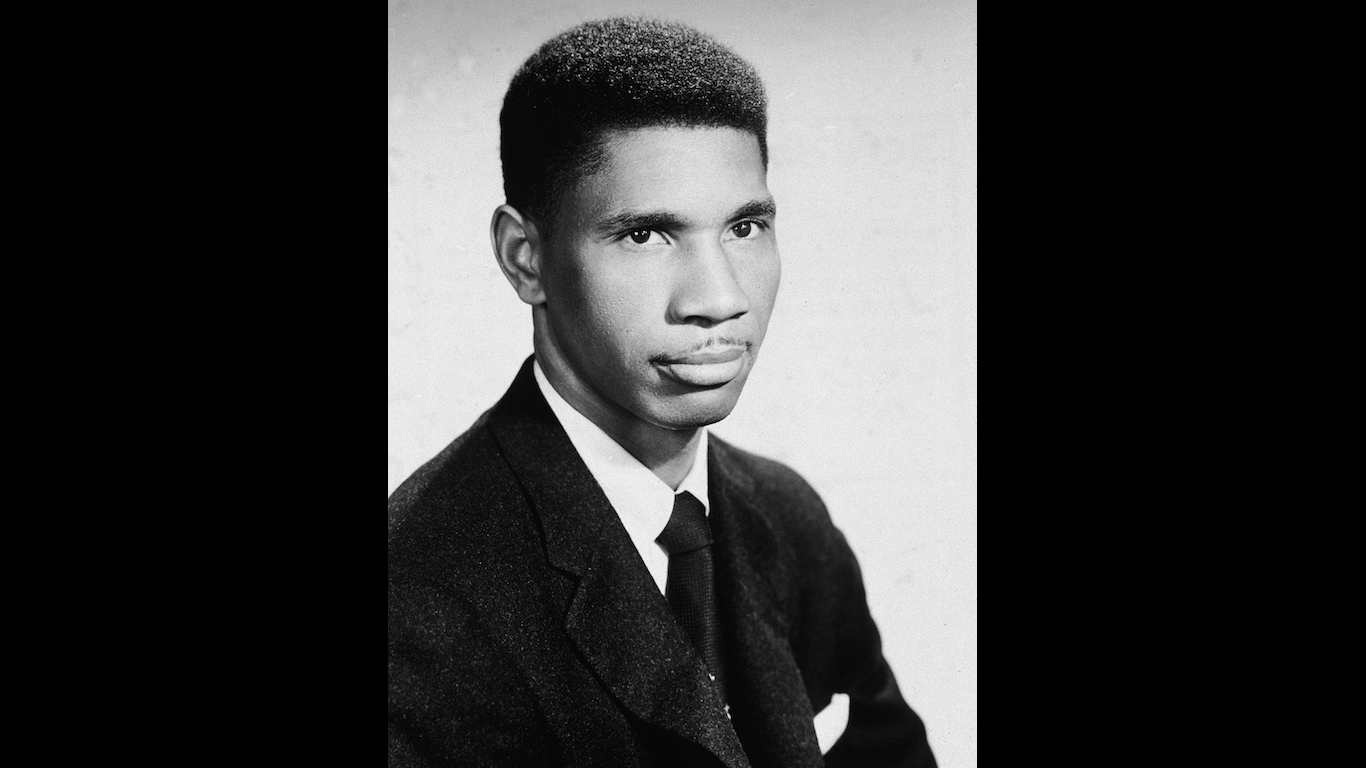
30. Medgar Evers (1925-1963)
> Occupations: Insurance salesman and civil rights organizer
> Cause: Voting rights, school desegregation
Evers, an NAACP official who was pivotal in the desegregation of the University of Mississippi, was slain at home by a white extremist. Not until more than 30 years later, in 1994, was Evers’ assassin convicted.
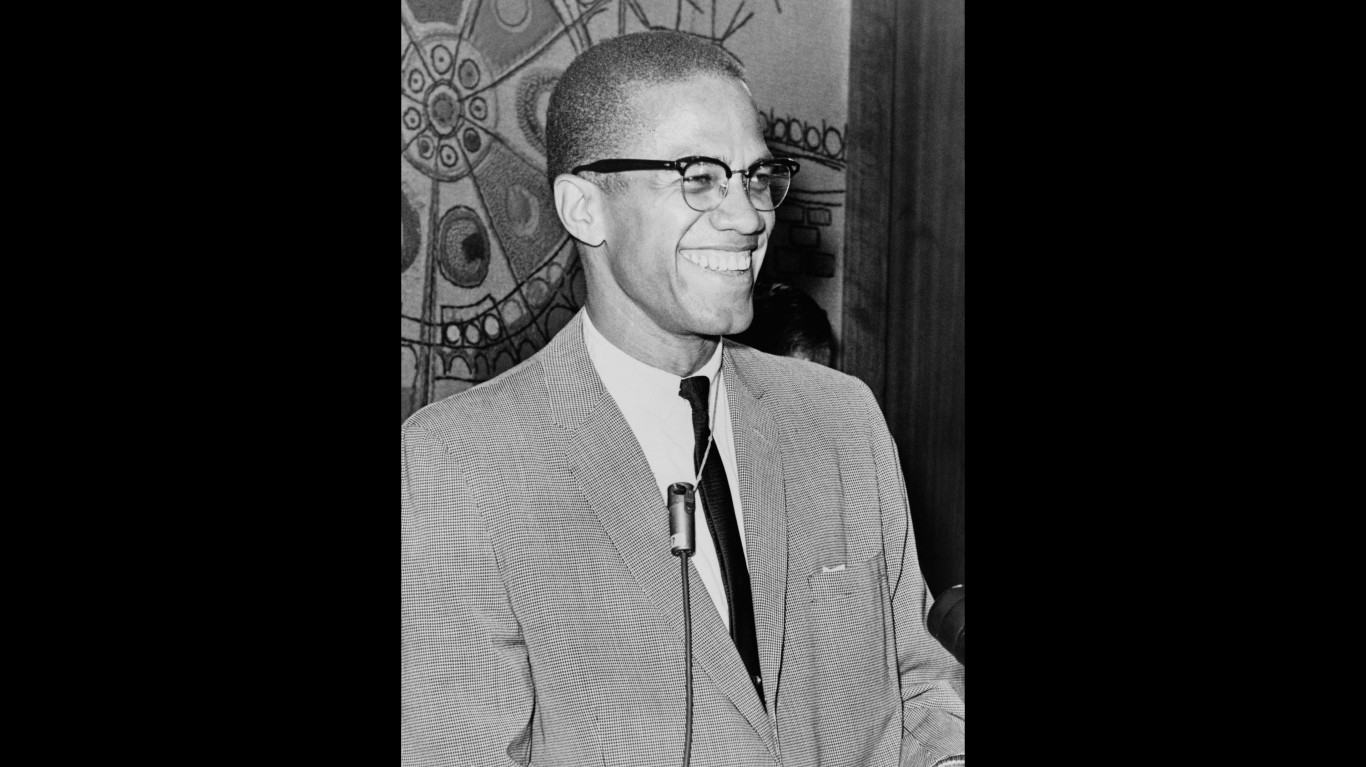
31. Malcolm X (1925-1965)
> Occupations: Minister, writer
> Cause: African-American empowerment
Malcolm X was an American speaker, activist and leader of the Nation of Islam movement who believed all white people were devils. He changed those views after his pilgrimage to Mecca in Saudi Arabia. Malcolm X was assassinated by followers of Nation of Islam in 1965.
[in-text-ad]
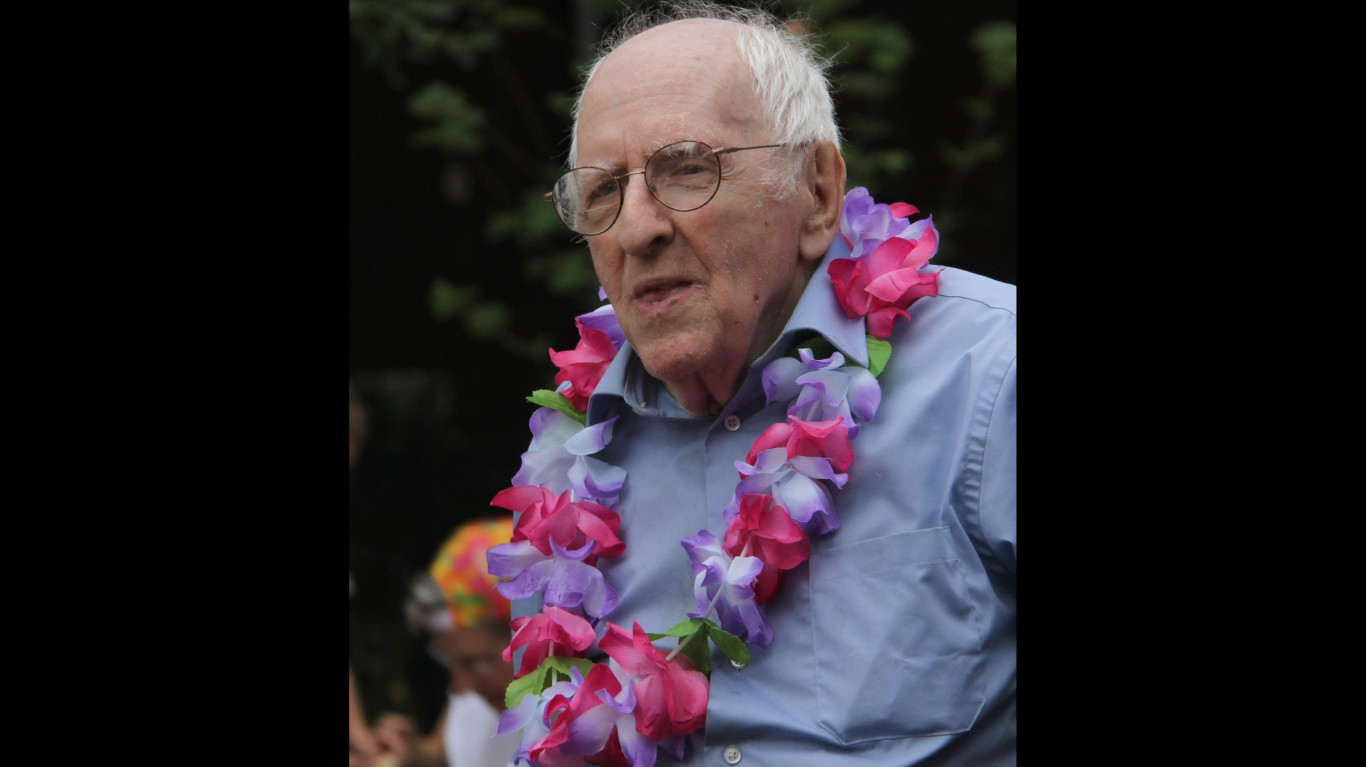
32. Frank Kameny (1925-2011)
> Occupations: Astronomer, politician
> Cause: Gay rights pioneer
After he was fired from his job in the military in 1957 because he was gay, Kameny founded the American gay rights movement. He lived long enough to see Congress pass legislation in 2009 that criminalizes acts of violence against those in the gay community.
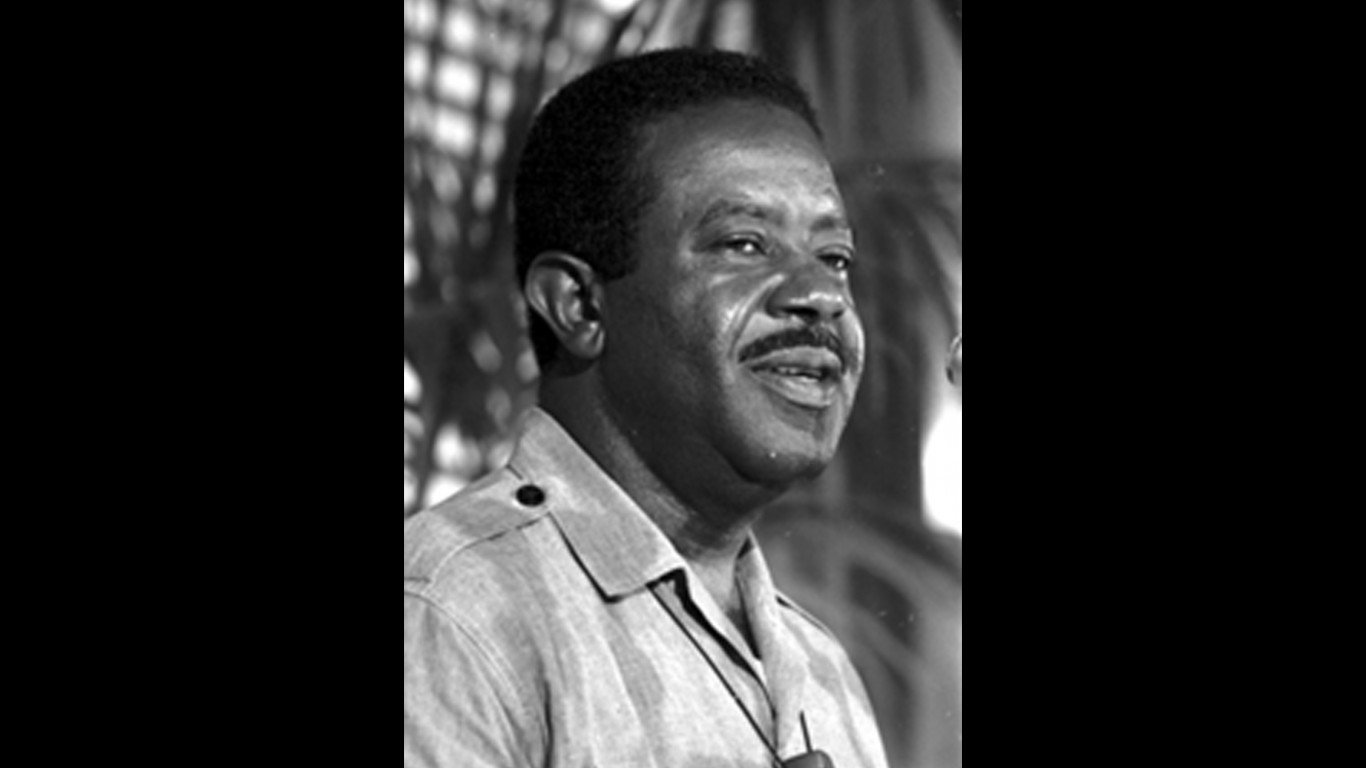
33. Ralph Abernathy (1926-1990)
> Occupation: Minister
> Cause: Discrimination against minorities
Abernathy, who co-founded the Southern Christian Leadership Conference, also advised Martin Luther King Jr. and helped organize the Montgomery bus boycott.
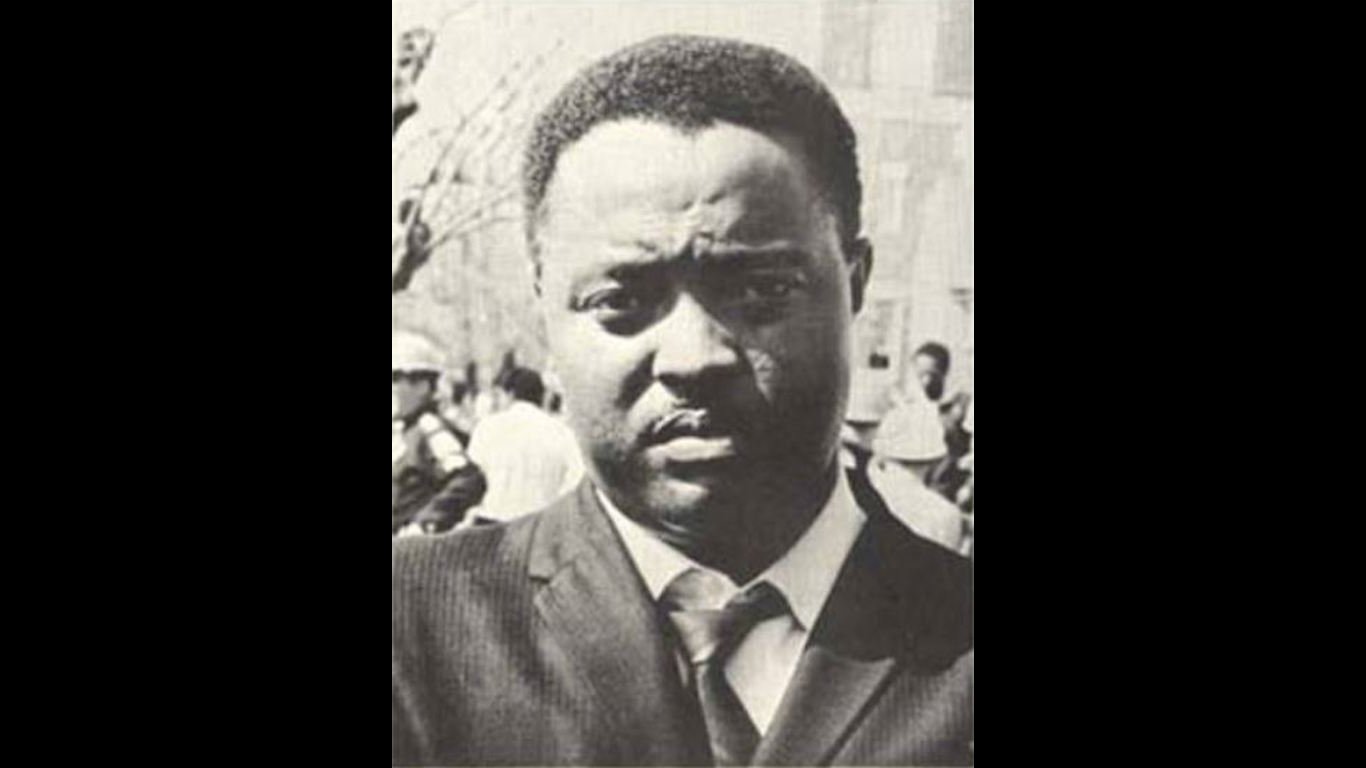
34. Hosea Williams (1926-2000)
> Occupations: Scientist, businessman, bail bondsman, minister
> Cause: African-American voter registration
Williams, a World War II Purple Heart recipient, was a civil rights activist and one of the leaders of the historic voting rights march on Selma.
[in-text-ad-2]
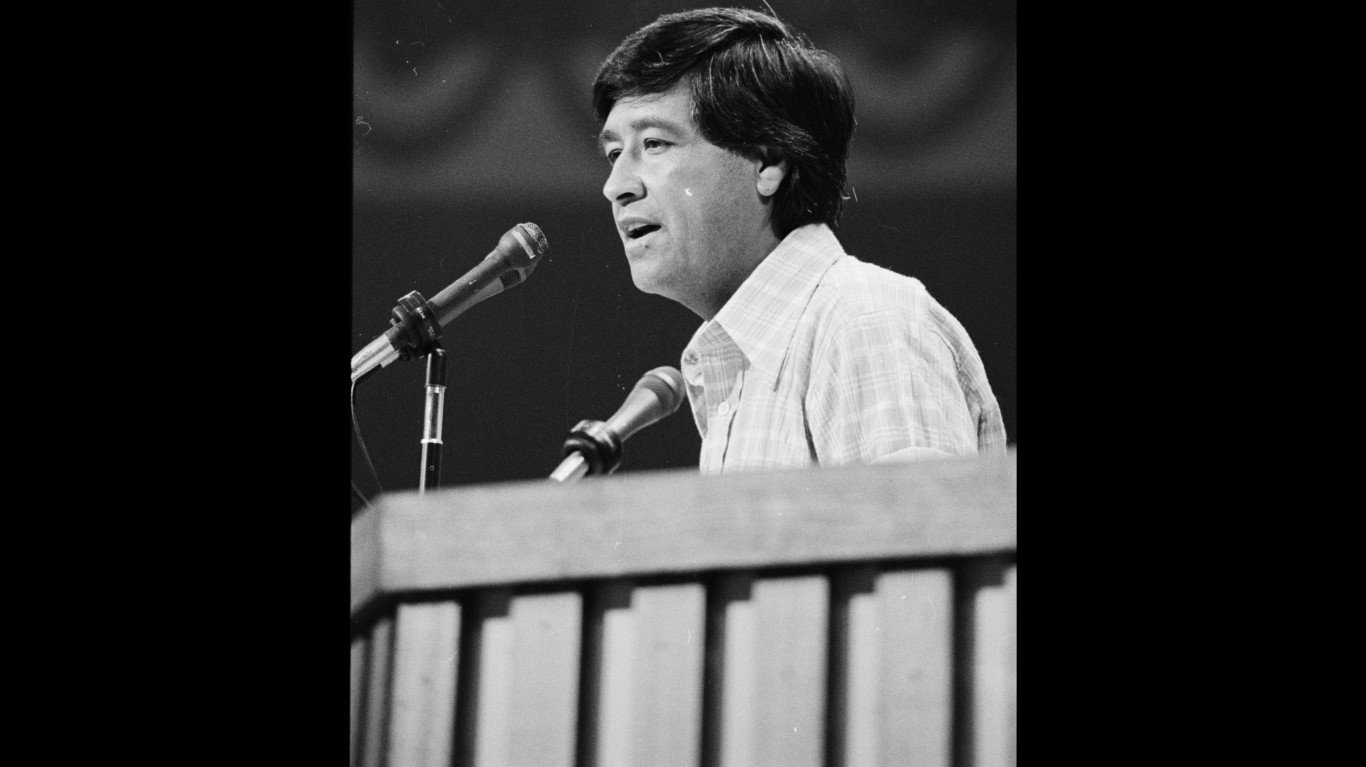
35. Cesar Chavez (1927-1993)
> Occupations: Farm worker, trade unionist
> Cause: Workers’ rights
Chavez campaigned to improve Latino farm workers’ working conditions and raise their wages. He was a strong advocate for non-violent strategy in organizing boycotts and hunger strikes in the U.S.
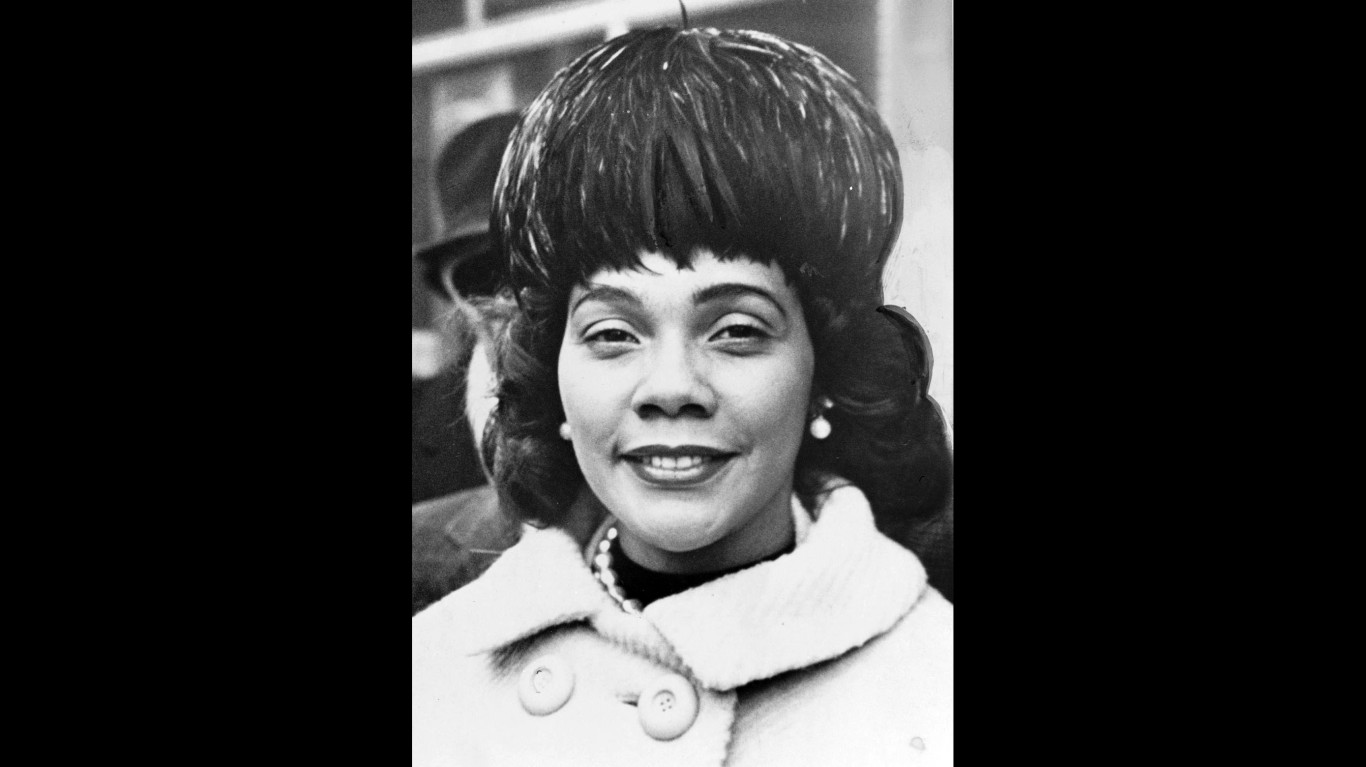
36. Coretta Scott King (1927-2006)
> Occupations: Author, singer
> Cause: Liaison to peace and justice organizations
Wife of Martin Luther King Jr., King was herself the leader of the Southern Christian Leadership Conference. After her husband’s death, she founded the Martin Luther King Jr. Center for Nonviolent Social Change.
[in-text-ad]
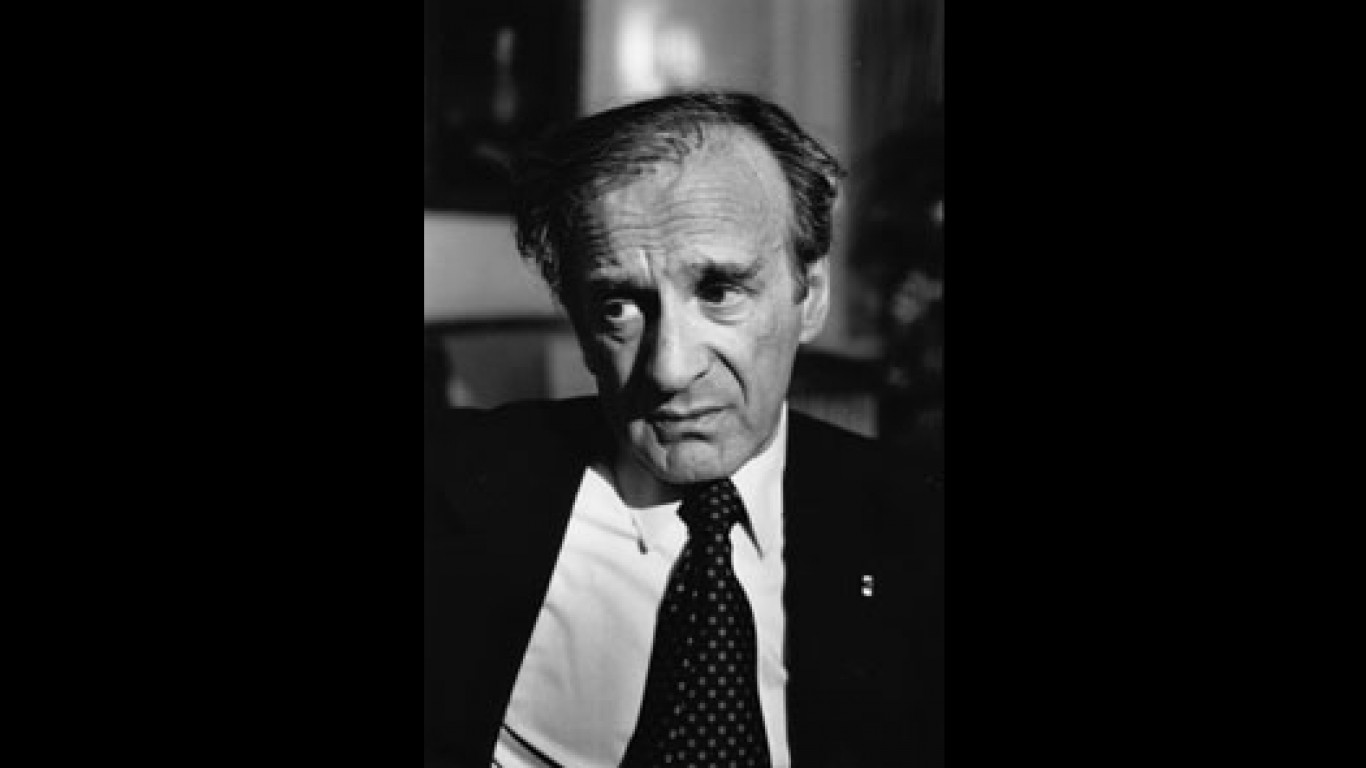
37. Elie Wiesel (1928-2016)
> Occupations: Author, professor, novelist, philosopher, screenwriter
> Cause: Human rights
Wiesel was a writer, Holocaust survivor, activist, and Jewish rights leader. His memoir “NIght” recalled his experiences in a concentration camp during World War II.
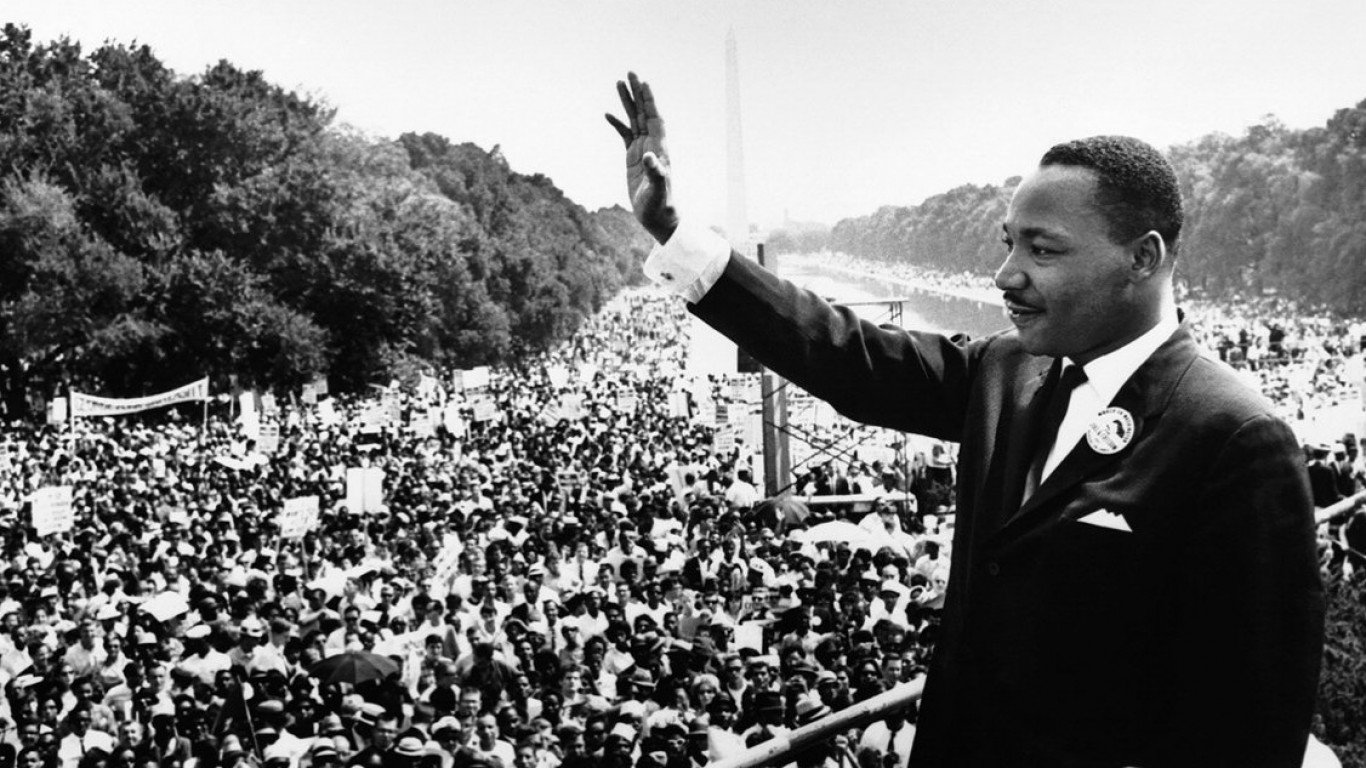
38. Martin Luther King, Jr. (1929-1968)
> Occupation: Minister
> Cause: Racial justice
King, the symbol of the civil rights movement, was influenced by Mohandas Gandhi’s non-violent tactics. King was involved in virtually every significant civil rights event in the 1950s and 1960s before he was slain in Memphis, Tennessee, 50 years ago.
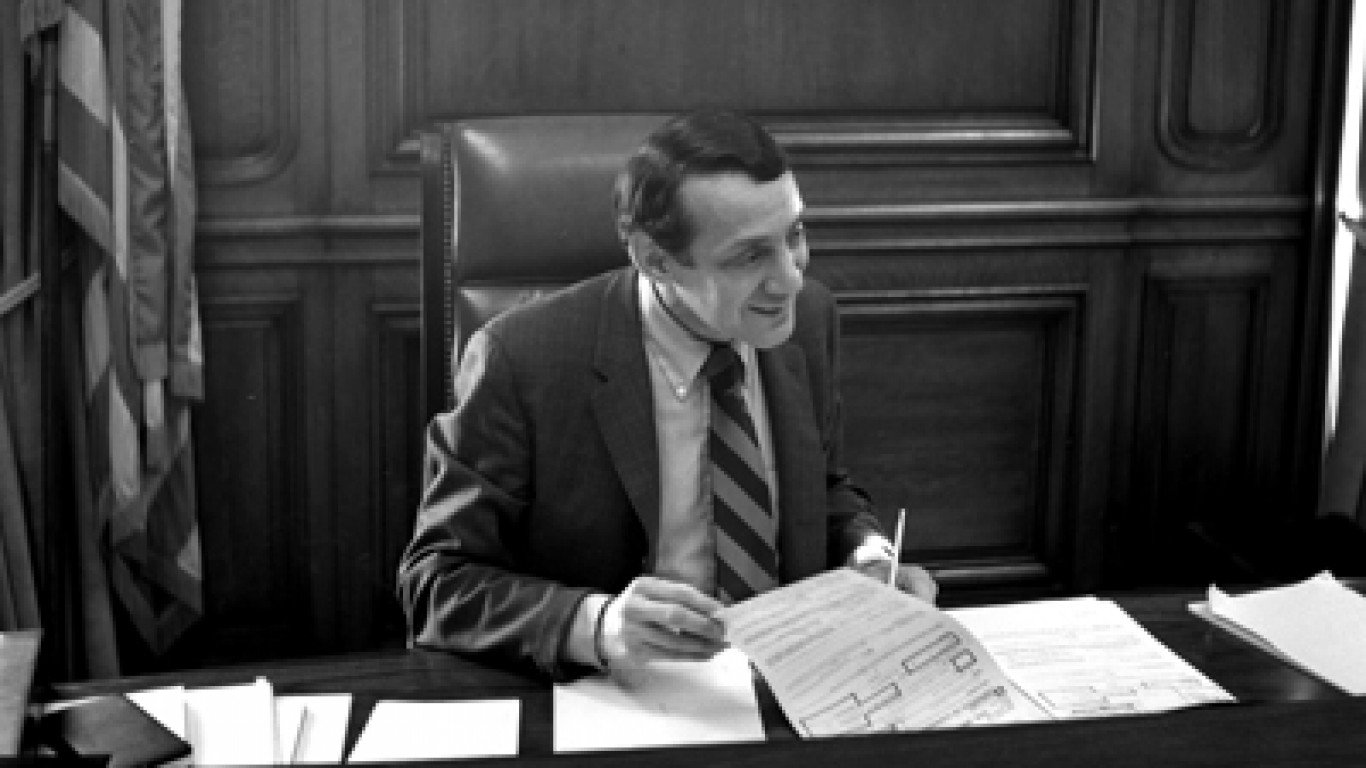
39. Harvey Milk (1930-1978)
> Occupations: Politician, businessman
> Cause: Gay rights
A politician from San Francisco, Milk was a gay rights activist and leader who was killed by a political rival.
[in-text-ad-2]

40. John Lewis (1940-)
> Occupations: Politician, writer
> Cause: Challenging bus, rail segregation
Lewis helped organize the historic voting rights march to Selma in 1965, where he was injured by those opposing the march. Lewis was a keynote speaker at the march on Washington in 1963.
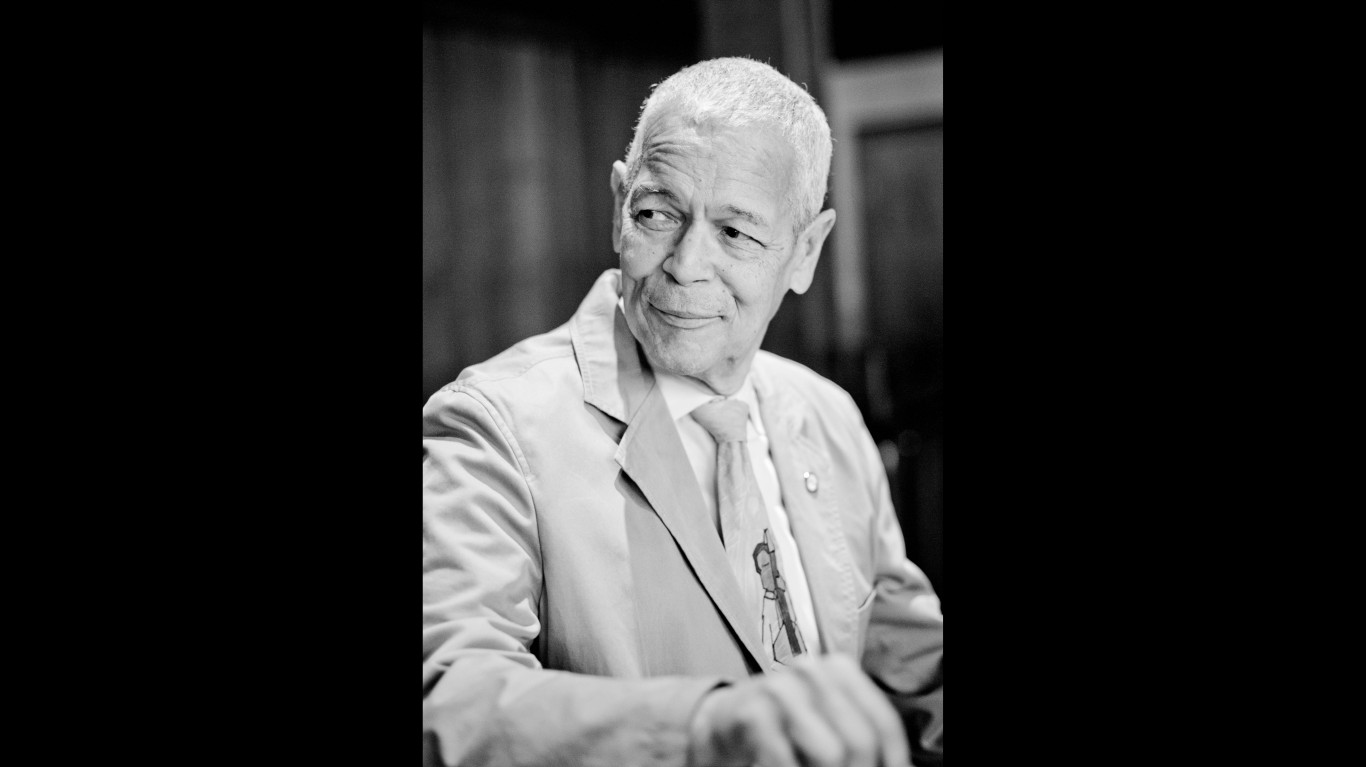
41. Julian Bond (1940-2015)
> Occupations: Politician, teacher, writer
> Cause: American civil rights
Bond, the first African American nominated as vice presidential candidate in 1968, withdrew his nomination because he would have been too young to serve. Bond also co-founded the Southern Poverty Law Center.
[in-text-ad]
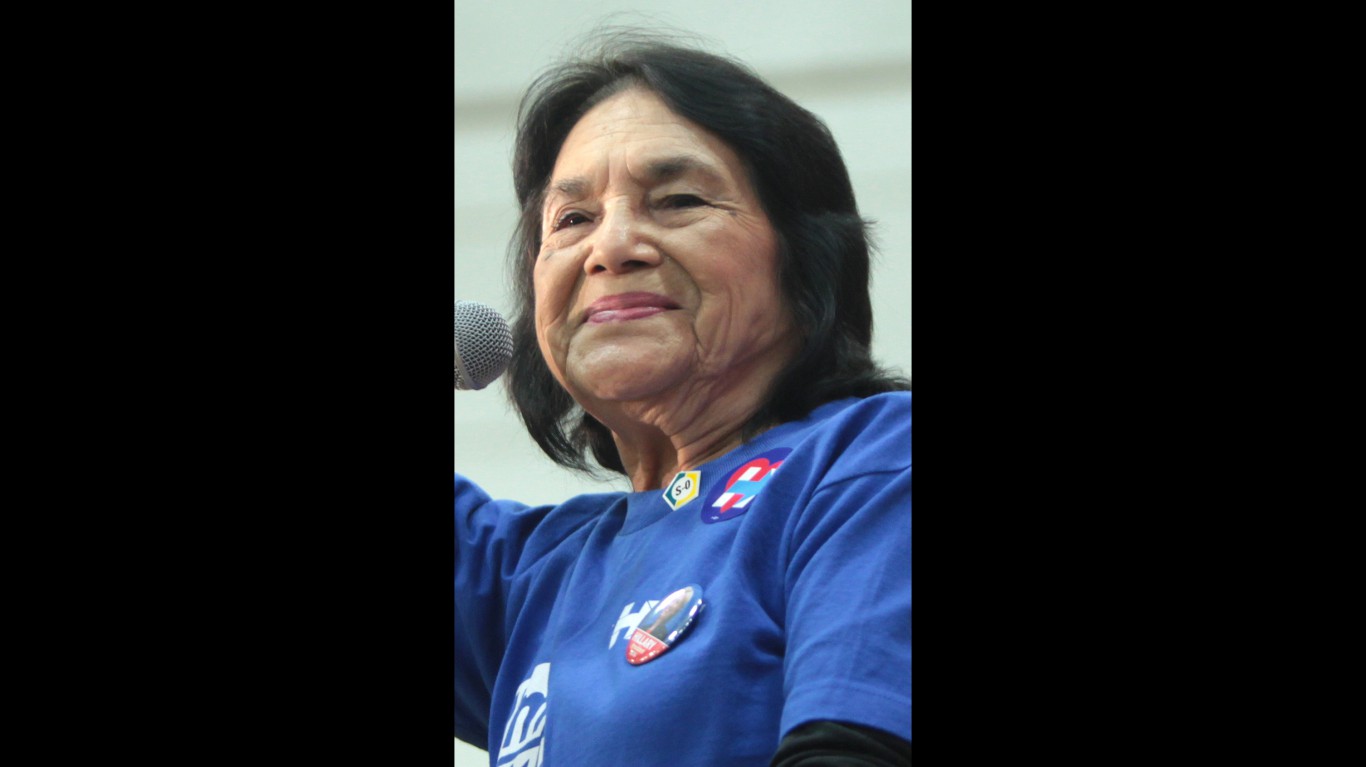
42. Dolores Huerta (1930-)
> Occupations: Labor leader, actor
> Cause: Workers’ rights
Known as vigorous organizer, Huerta was a labor and civil rights activist who also co-founded the United Farm Workers union.
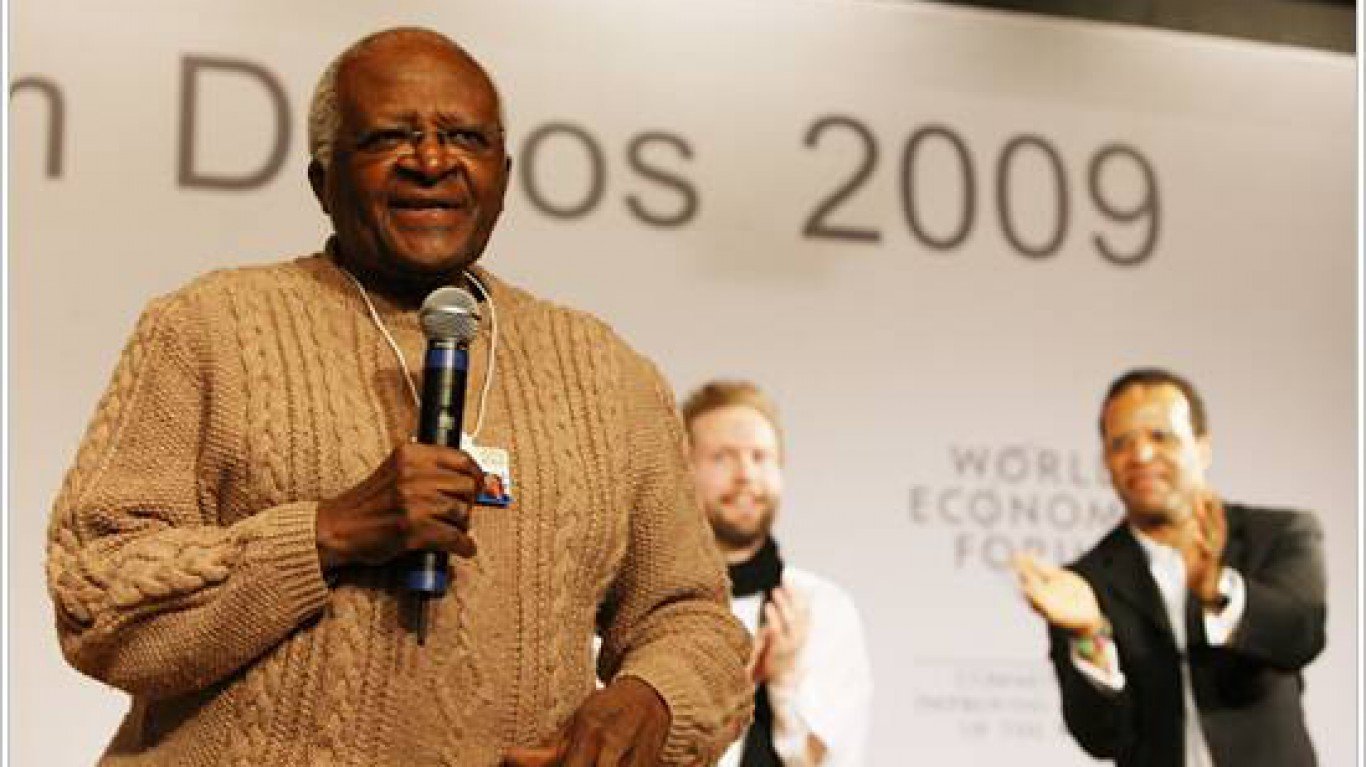
43. Desmond Tutu (1931-)
> Occupations: Priest, teacher, author, theologian
> Cause: Ending apartheid in South Africa
As a cleric, Tutu was the conscience of the anti-apartheid movement and won the Nobel Peace Prize for his work to end the oppressive system of apartheid in South Africa.
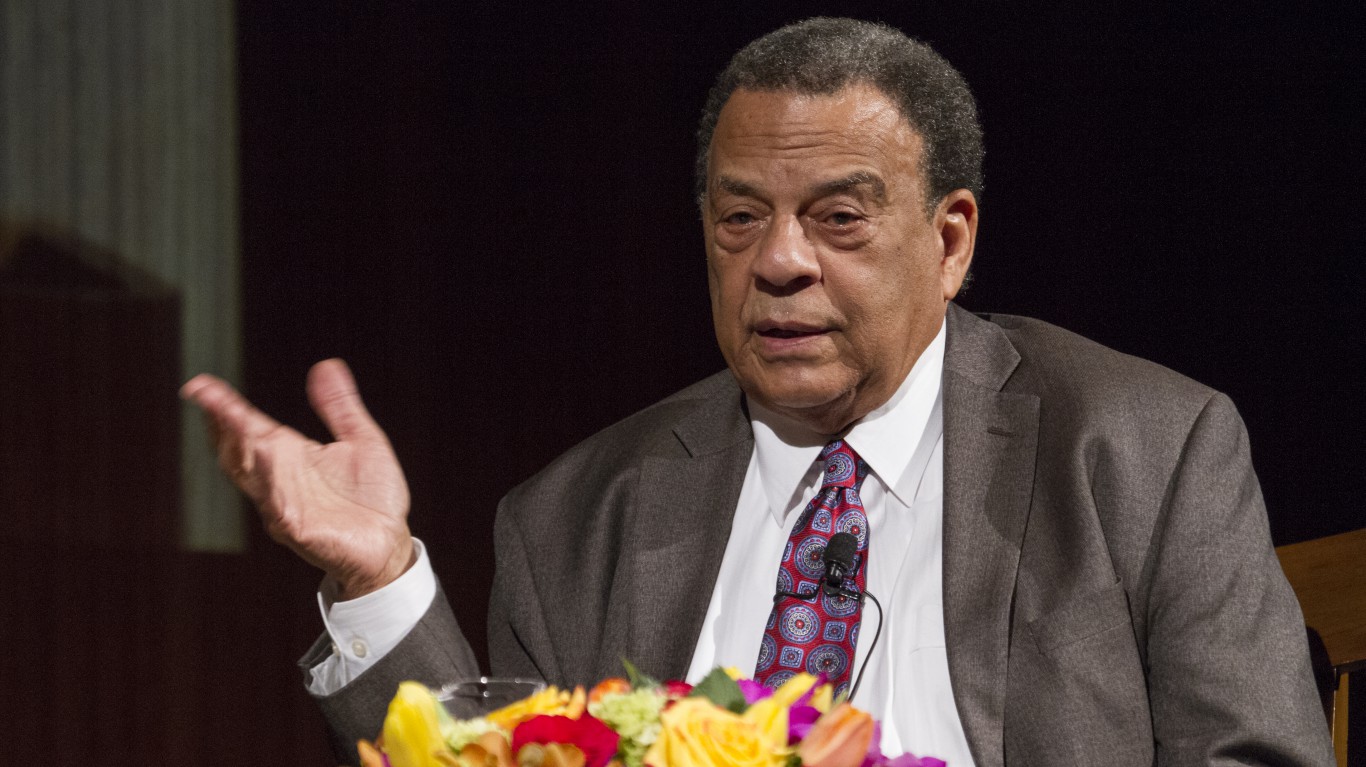
44. Andrew Young (1932-)
> Occupations: Politician, screenwriter, film producer
> Cause: African-American voter registration
Young’s distinguished career includes serving as U.N. ambassador, mayor of Atlanta, executive director of the Southern Christian Leadership Conference, and confidant to Martin Luther King Jr.
[in-text-ad-2]
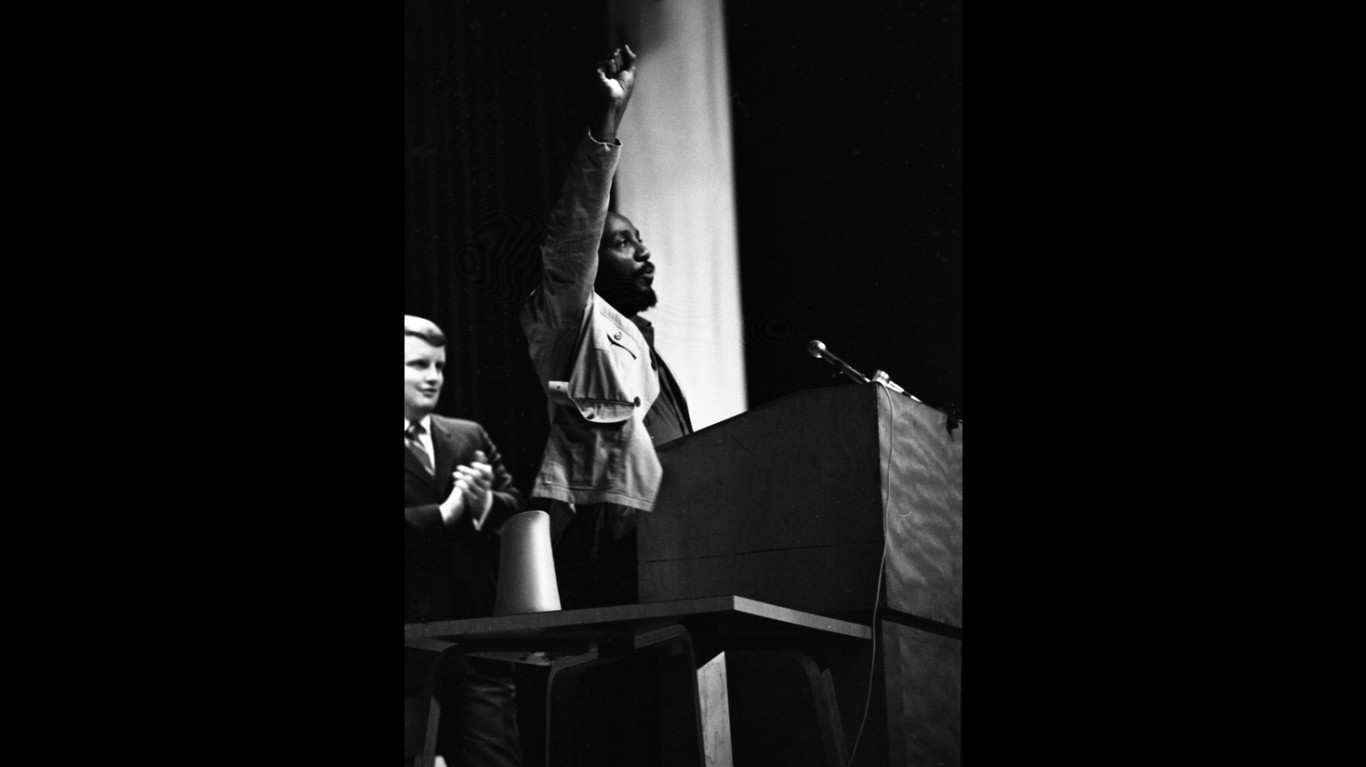
45. Dick Gregory (1932-2017)
> Occupations: Comedian, author, writer, entrepreneur
> Cause: Free speech
A ground-breaking comedian, Gregory addressed civil rights in his comedy act. Gregory was a free speech advocate as well as a civil rights activist.
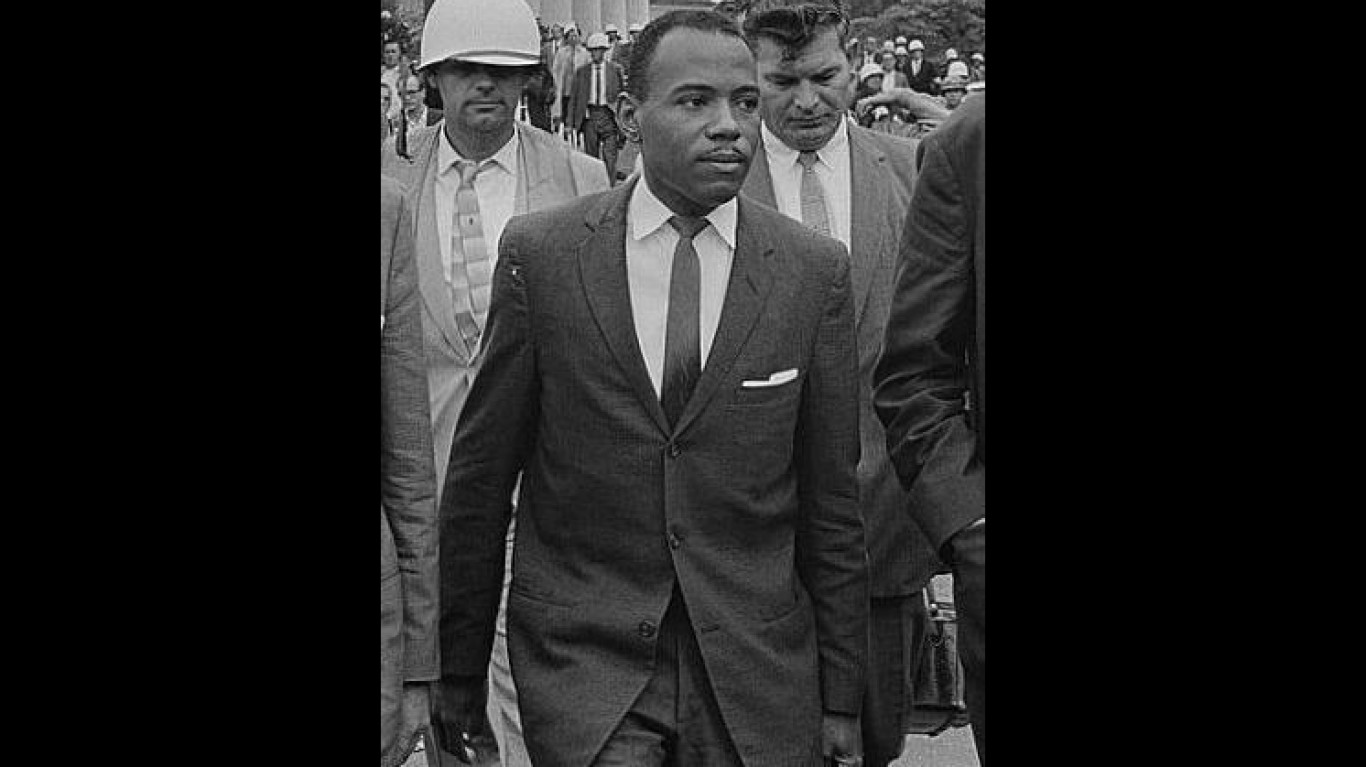
46. James Meredith (1933-)
> Occupation: Writer
> Cause: Voting rights
Meredith was the first African-American to attend the University of MIssissippi. He was wounded during a march in 1966 to encourage African-Americans to vote.
[in-text-ad]
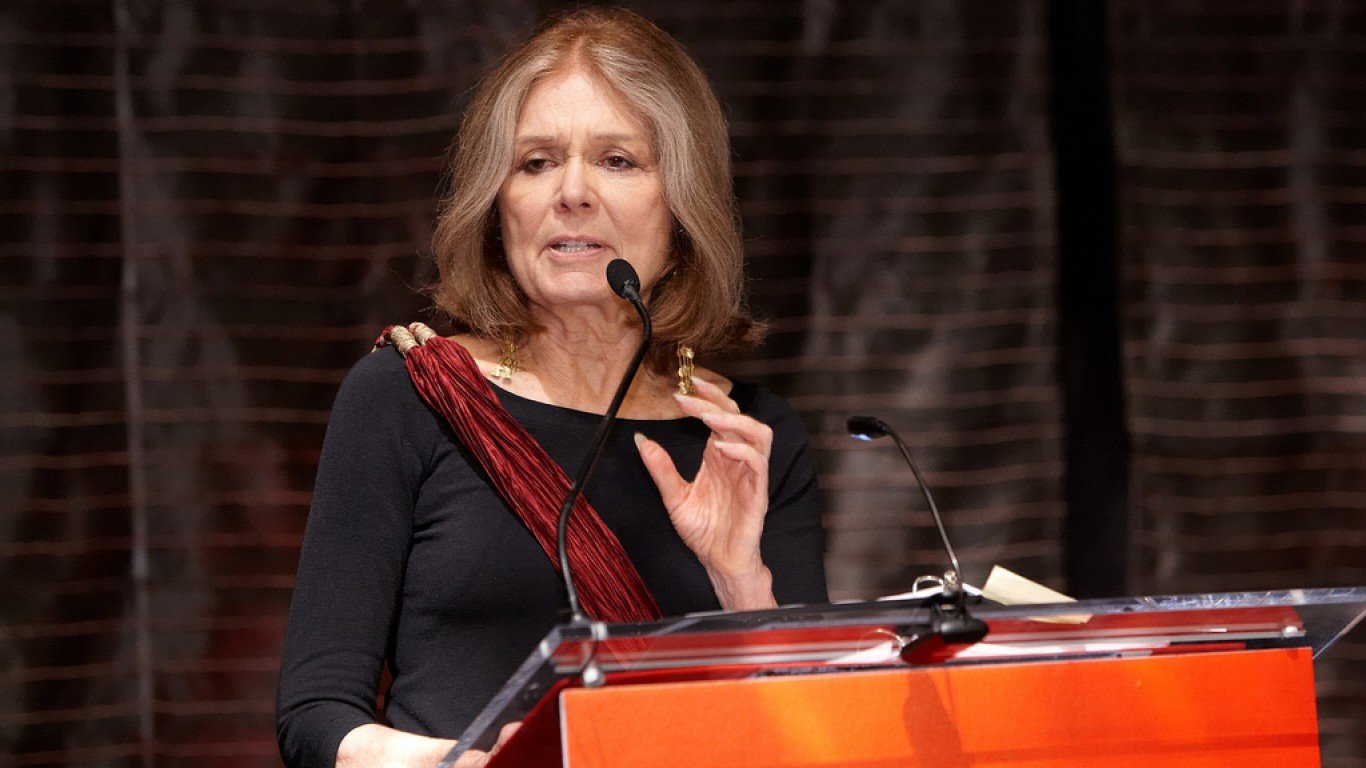
47. Gloria Steinem (1934-)
> Occupations: Author, editor, journalist
> Cause: Feminism
The feminist, editor, and author also co-founded Ms. magazine. One of Steinem’s most famous articles was an expose of the Playboy Club that she researched while working undercover as a waitress at the club.
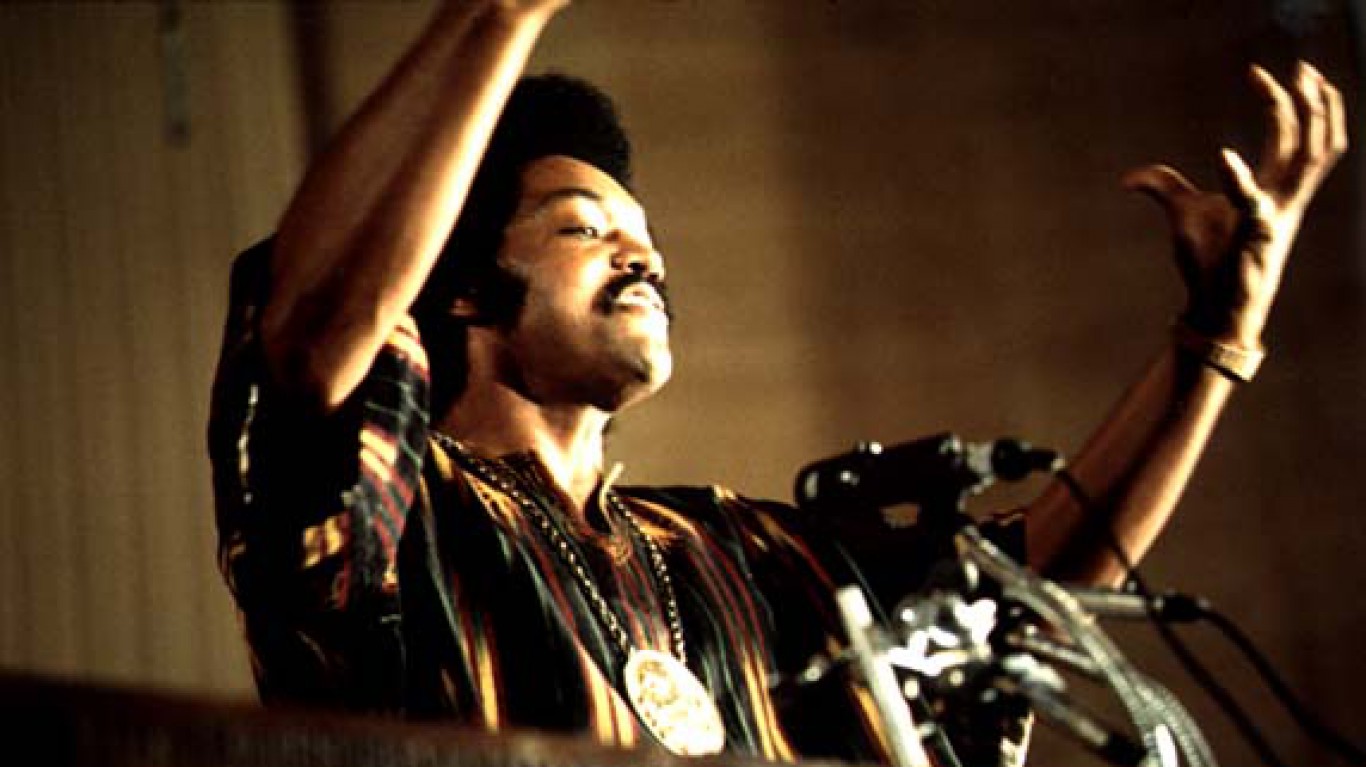
48. Jesse Jackson (1941-)
> Occupations: Minister, politician, film producer, athlete
> Cause: Equal treatment of races
Jackson became one of the most prominent civil rights activists after the death of Martin Luther King Jr., and ran for president twice. He received the Presidential Medal of Freedom in 2000.
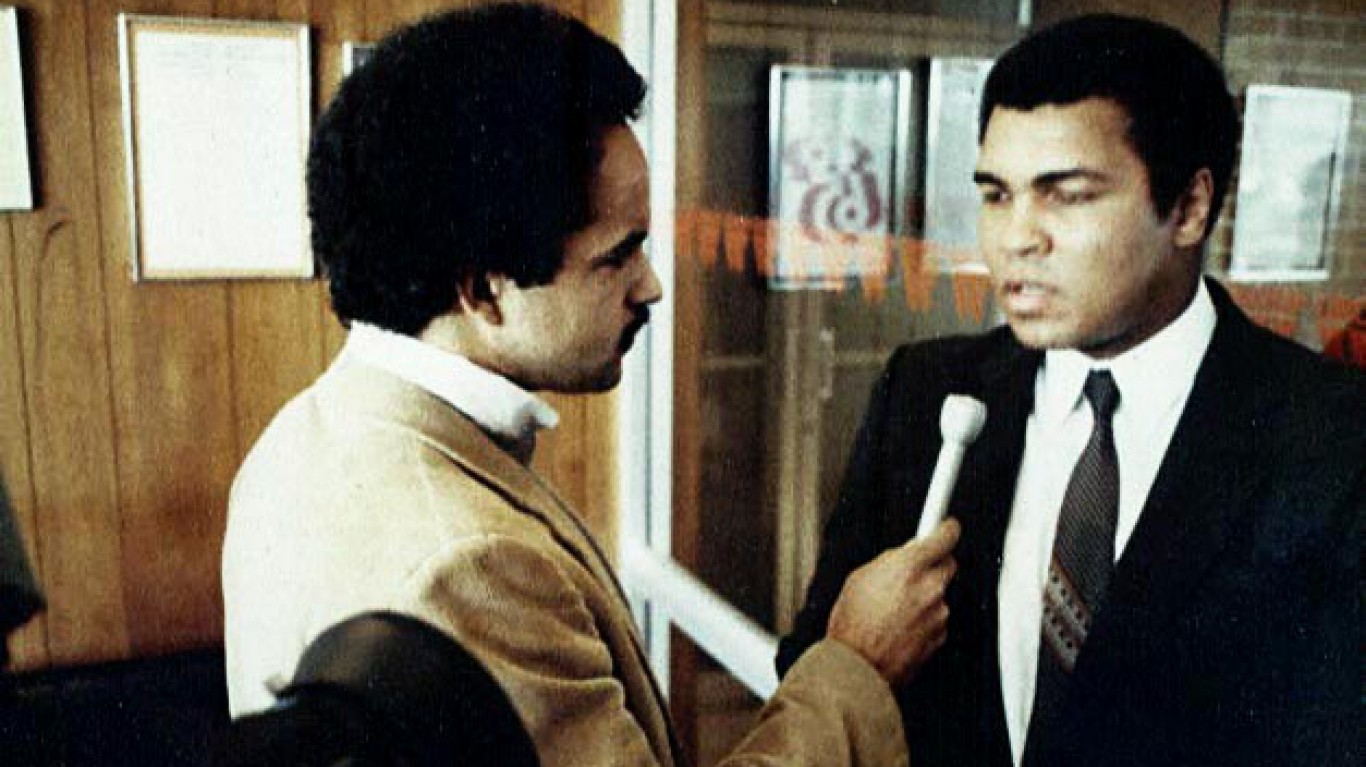
49. Muhammad Ali (1942-2016)
> Occupations: Boxer, author, actor, philanthropist
> Cause: Anti-Vietnam War stance
The heavyweight world champion boxer became the most visible opponent of the Vietnam War when Ali refused to be drafted into the military. His boxing license was suspended because of his opposition to the war.
[in-text-ad-2]
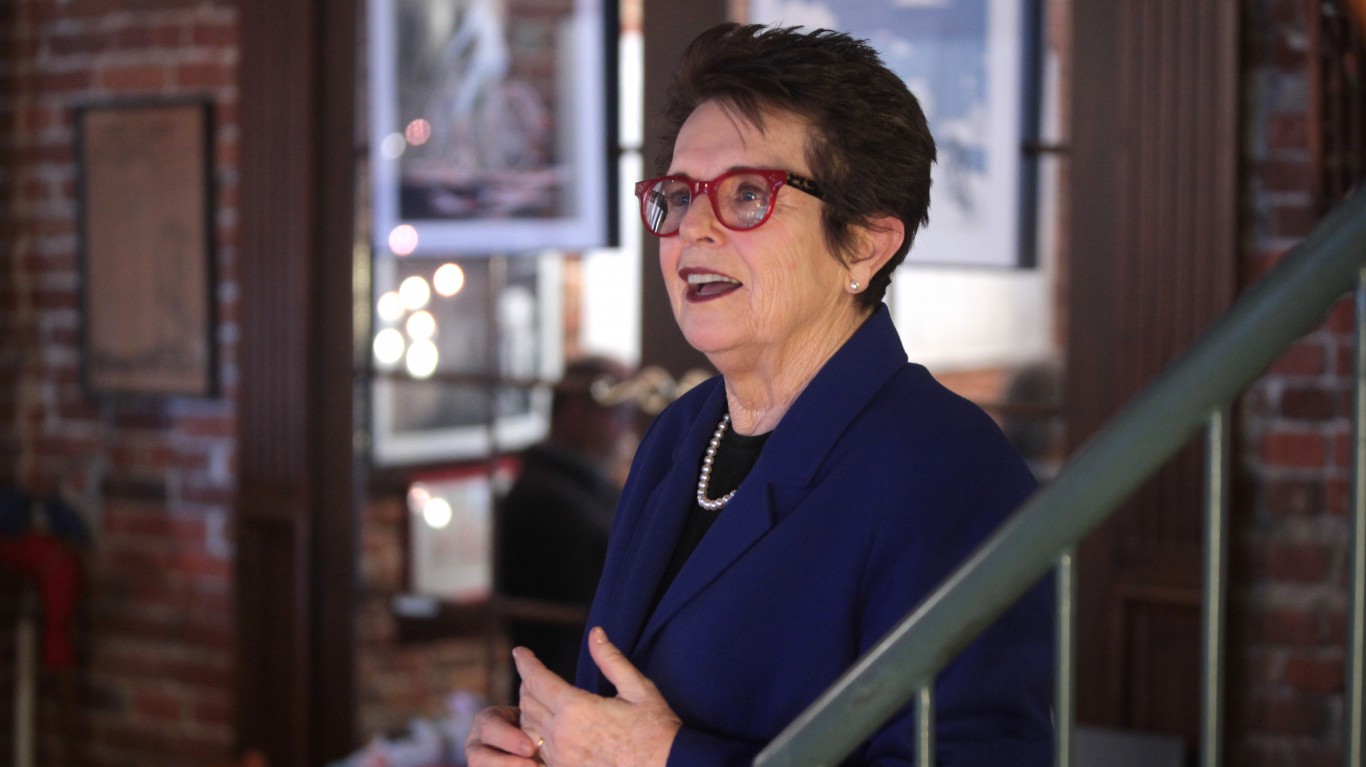
50. Billie Jean King (1943-)
> Occupations: Professional tennis player, author, film producer
> Cause: Feminism
King is the Hall of Fame women’s tennis player who defeated Bobby Riggs in the much-ballyhooed “Battle of the Sexes” tennis match. King fought for gender equality and equal pay for women tennis players.
Detailed Findings & Methodology
The struggle for civil rights was the dominant narrative of the 20th century, and it is far from over. Even though The Civil War had settled the issue of slavery in the United States, African Americans continued to live as marginalized citizens in their own country. In the South, onerous Jim Crow laws, poll taxes, and other forms of discrimination prevented African Americans from owning property, attending schools, getting jobs, and denied them the right to vote well into the 20th century.
Faced with institutional racism and violent reprisals from groups such as the Ku Klux Klan, the struggle for civil rights required courage and commitment from African Americans and others who believed in the cause. Two such heroes were pioneering civil rights figures Harry T. Moore and Harriette Moore. They fought for higher pay for African-American teachers in Florida as well as other civil rights issues in the early 1950s. For those causes, they ultimately paid with their lives.
The 1950s would see civil rights milestone events such as legislation throwing out the idea of separate but equal facilities; the integration of schools in Little Rock, Arkansas; and the Montgomery bus boycott.
The following decade would witness some of the momentous events of the civil rights movement, like the non-violent Birmingham campaign, the killings of three civil rights workers in Mississippi, the march on Selma, and the passage of the Civil Rights and Voting Rights acts.
Suffrage was not won easily for women in the United Kingdom. Emmeline Pankhurst led the movement for the right to vote for British women that began in the 19th century but was met with a resistant British government. Suffragettes responded with demonstrations, hunger strikes, and even acts of arson that shocked the public. British women would not gain full equal voting rights until 1928, the year Pankhurst died.
The road for equal rights for the gay community was long as well. One of the founders of the modern gay rights movement, Frank Kameny, was fired from his job at the Army Map Service in 1957 because he was gay. Kameny took his case to the Supreme Court, saying the federal government’s treatment of him was an “affront to human dignity.” His petition was denied, but a movement was born.
The rights of Hispanic workers in the United States were championed by Cesar Chavez and Dolores Huerta, who led non-violent boycotts, marches, and hunger strikes to further their cause in the 1960s and 1970s.
In places such as India and South Africa, the path to freedom was trod by charismatic leaders Mohandas Gandhi and Nelson Mandela. Both men suffered prison and other indignities in the name of their causes of civil liberties and freedom for their peoples.
All of these civil rights leaders risked their lives and displayed courage in the face of violent resistance. As civil rights activist A. Philip Randolph famously said, “Freedom is never given; it is won.”
24/7 Wall St. reviewed biographies and news stories from resource material, websites of organizations such as the NAACP, Nobelprize.org, the the Nobel Prize website, and media sources for stories pertaining to notable civil rights figures to determine the most important civil rights leaders of the 20th century.
Take This Retirement Quiz To Get Matched With A Financial Advisor (Sponsored)
Take the quiz below to get matched with a financial advisor today.
Each advisor has been vetted by SmartAsset and is held to a fiduciary standard to act in your best interests.
Here’s how it works:
1. Answer SmartAsset advisor match quiz
2. Review your pre-screened matches at your leisure. Check out the
advisors’ profiles.
3. Speak with advisors at no cost to you. Have an introductory call on the phone or introduction in person and choose whom to work with in the future
Take the retirement quiz right here.
Thank you for reading! Have some feedback for us?
Contact the 24/7 Wall St. editorial team.
 24/7 Wall St.
24/7 Wall St. 24/7 Wall St.
24/7 Wall St. 24/7 Wall St.
24/7 Wall St. 24/7 Wall St.
24/7 Wall St. 24/7 Wall St.
24/7 Wall St.
